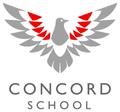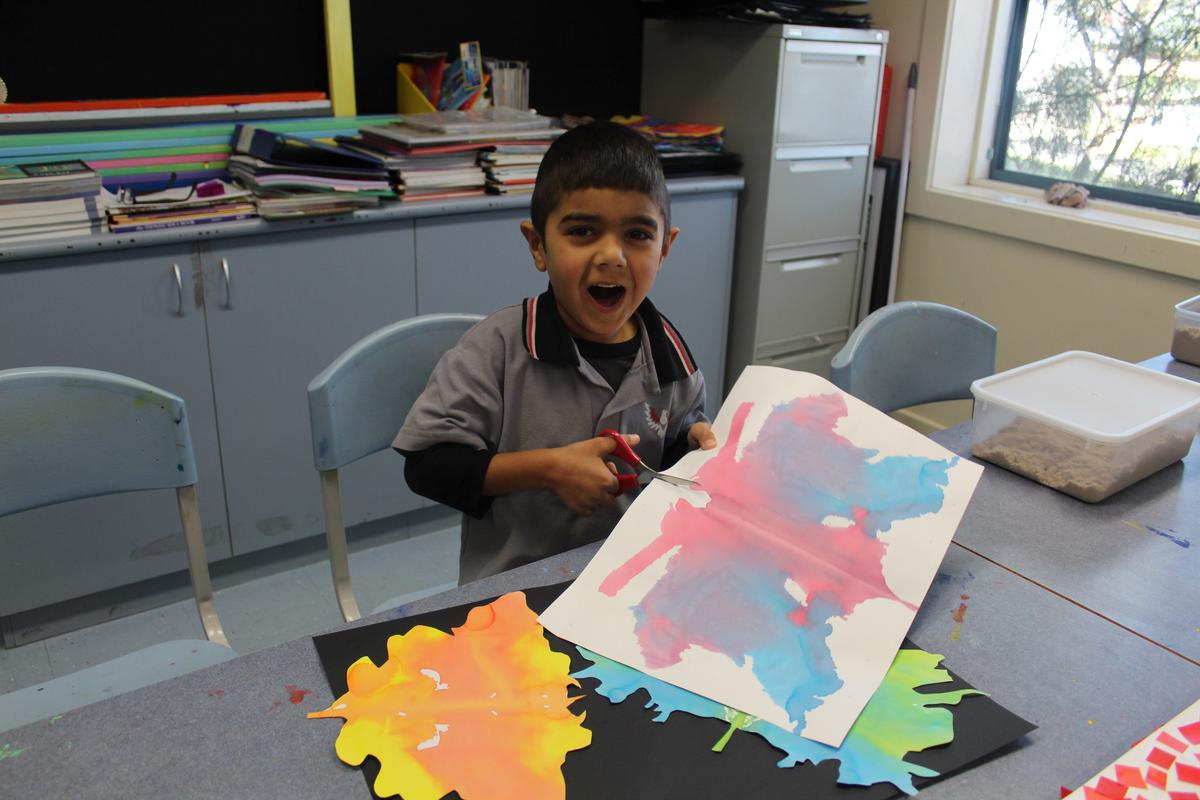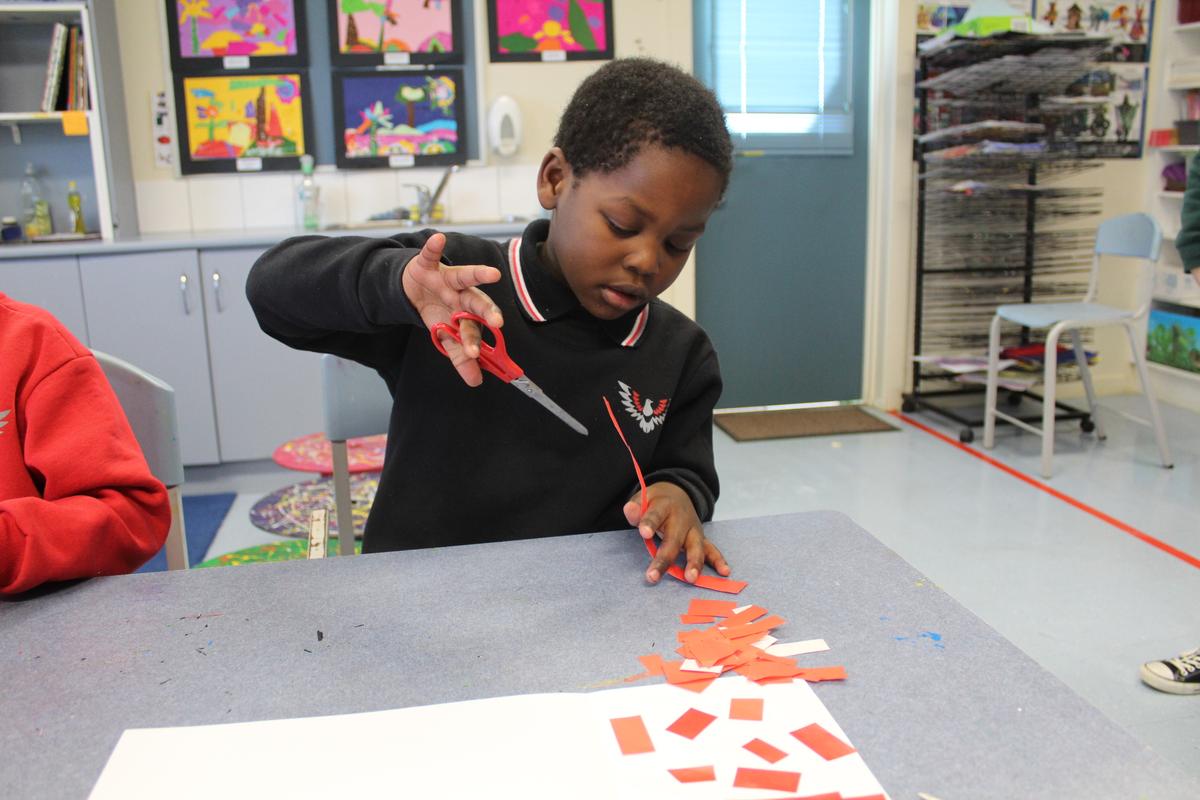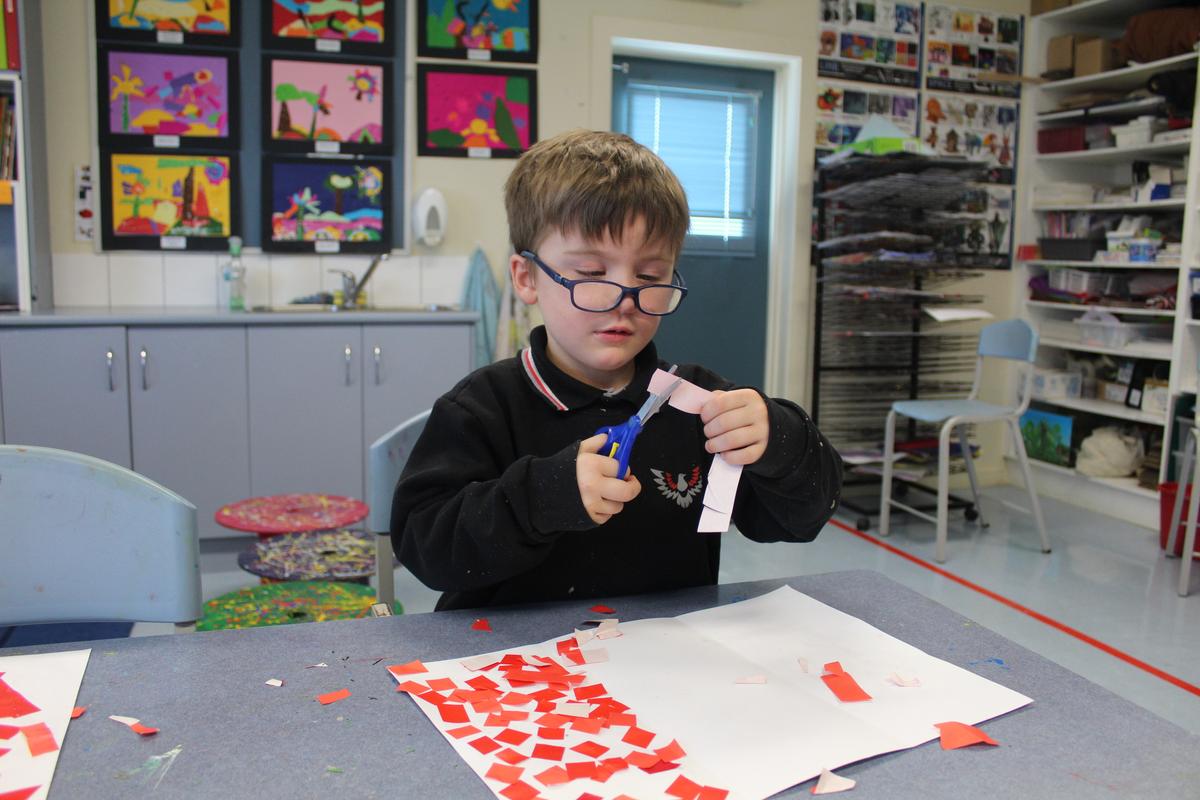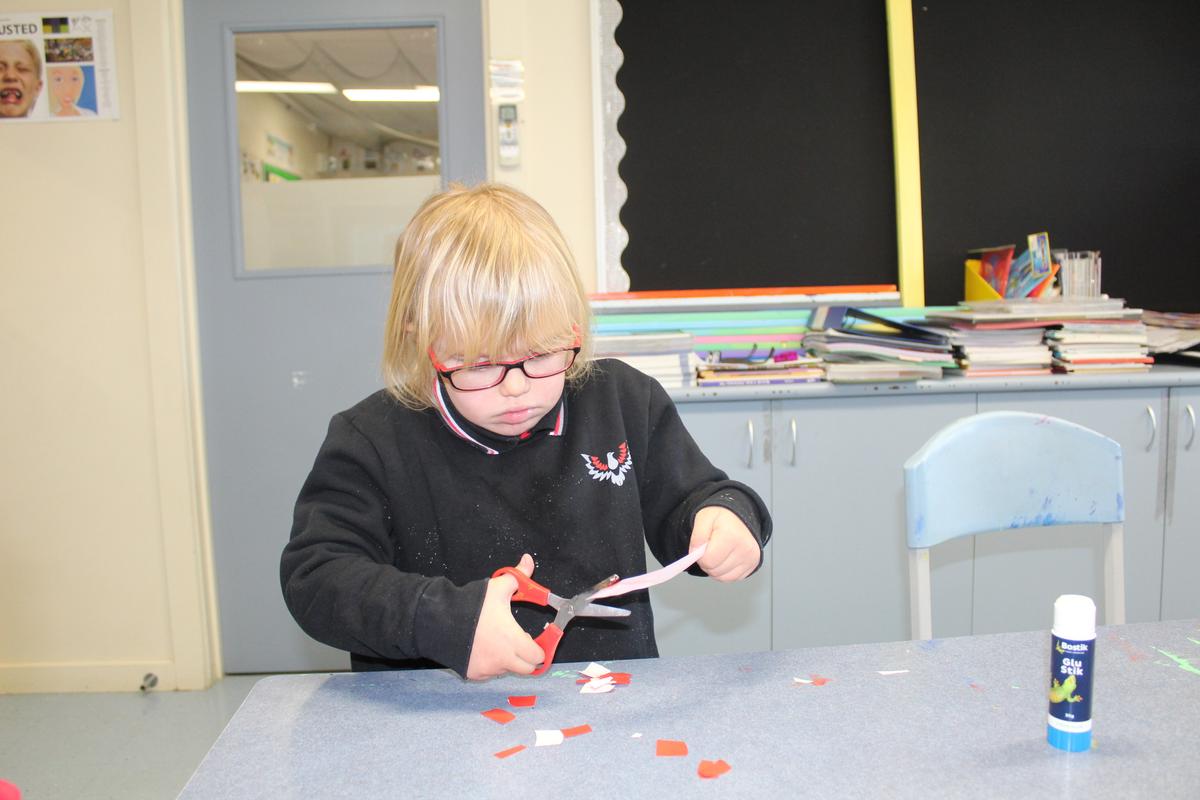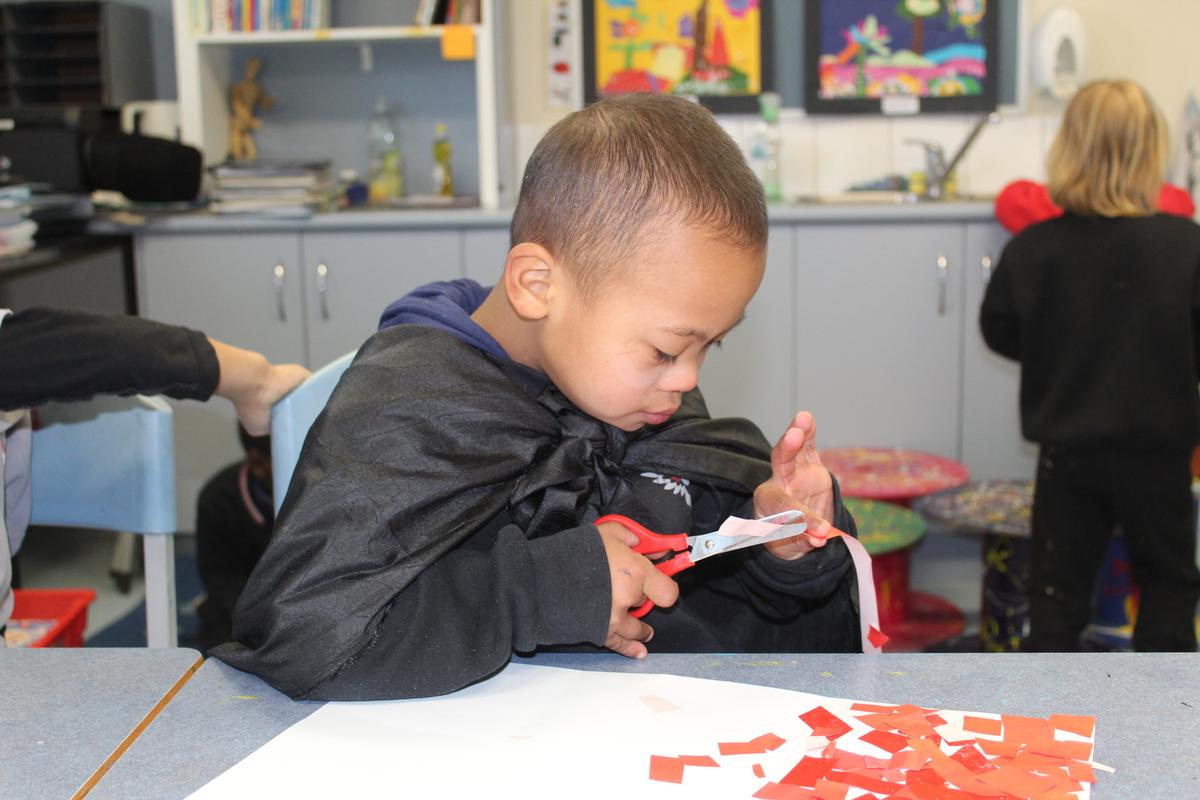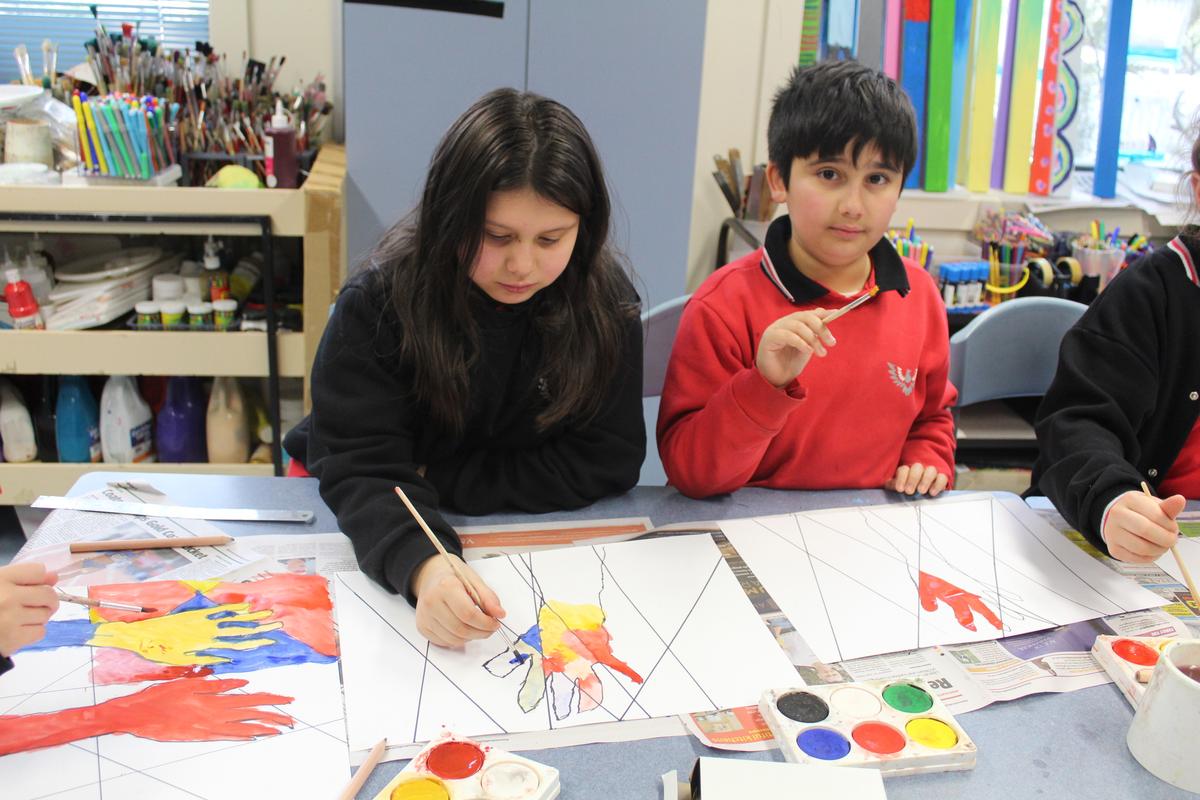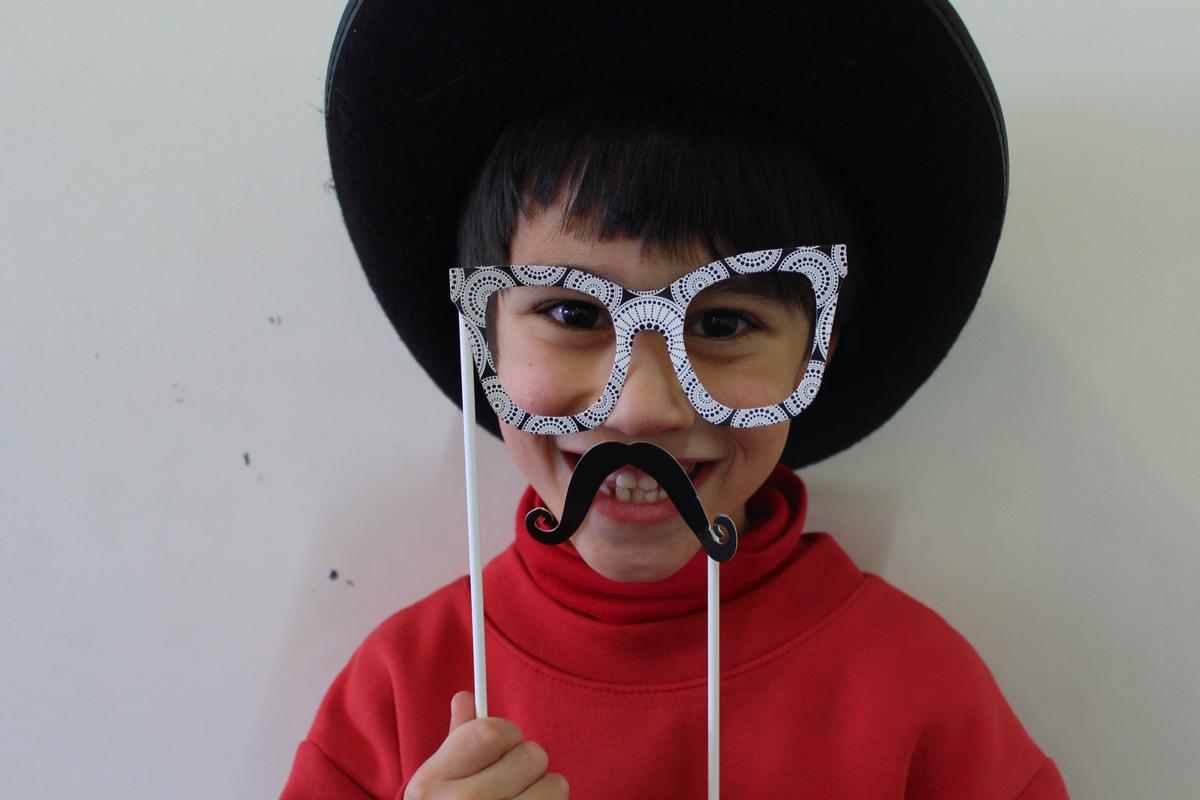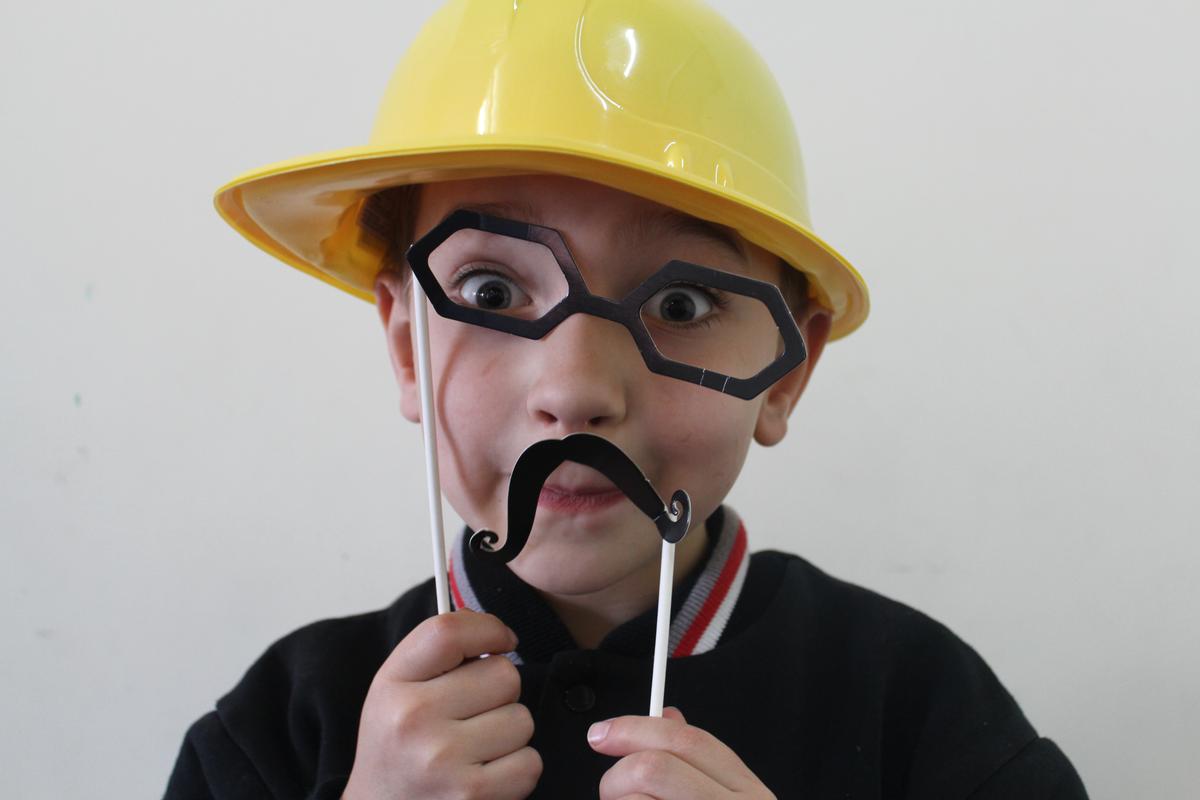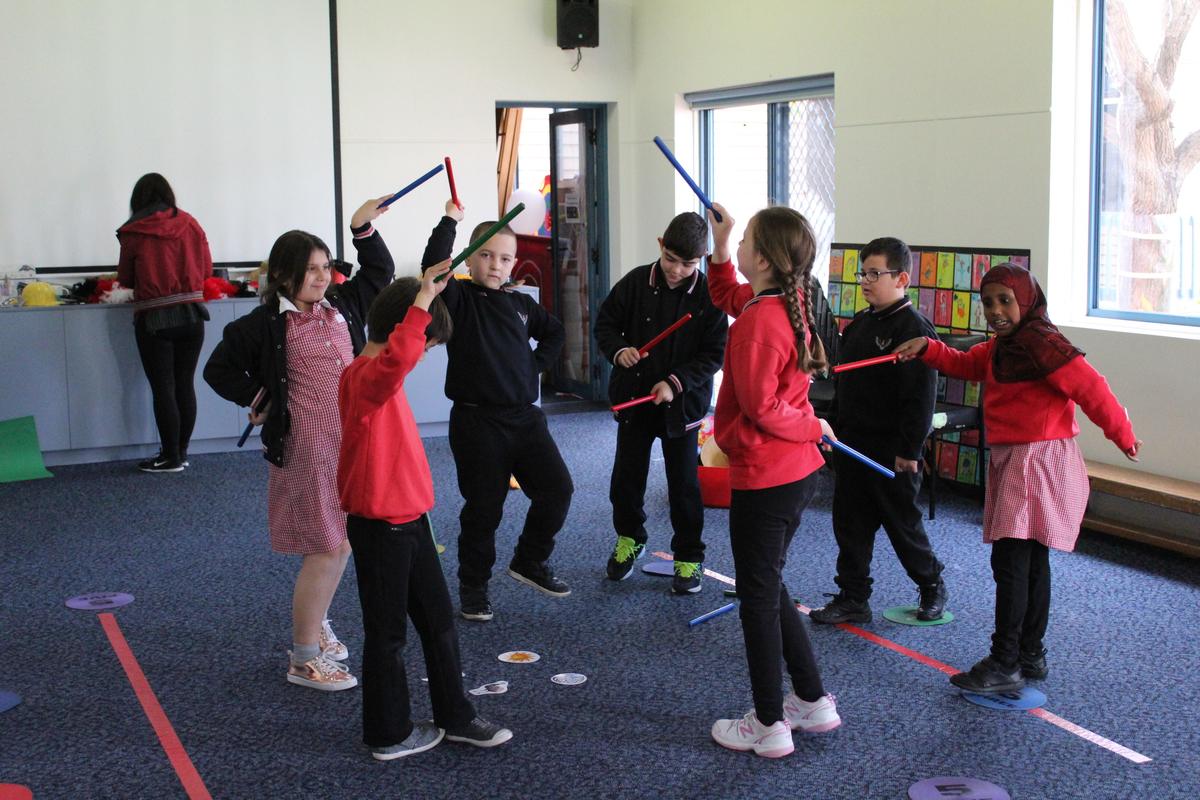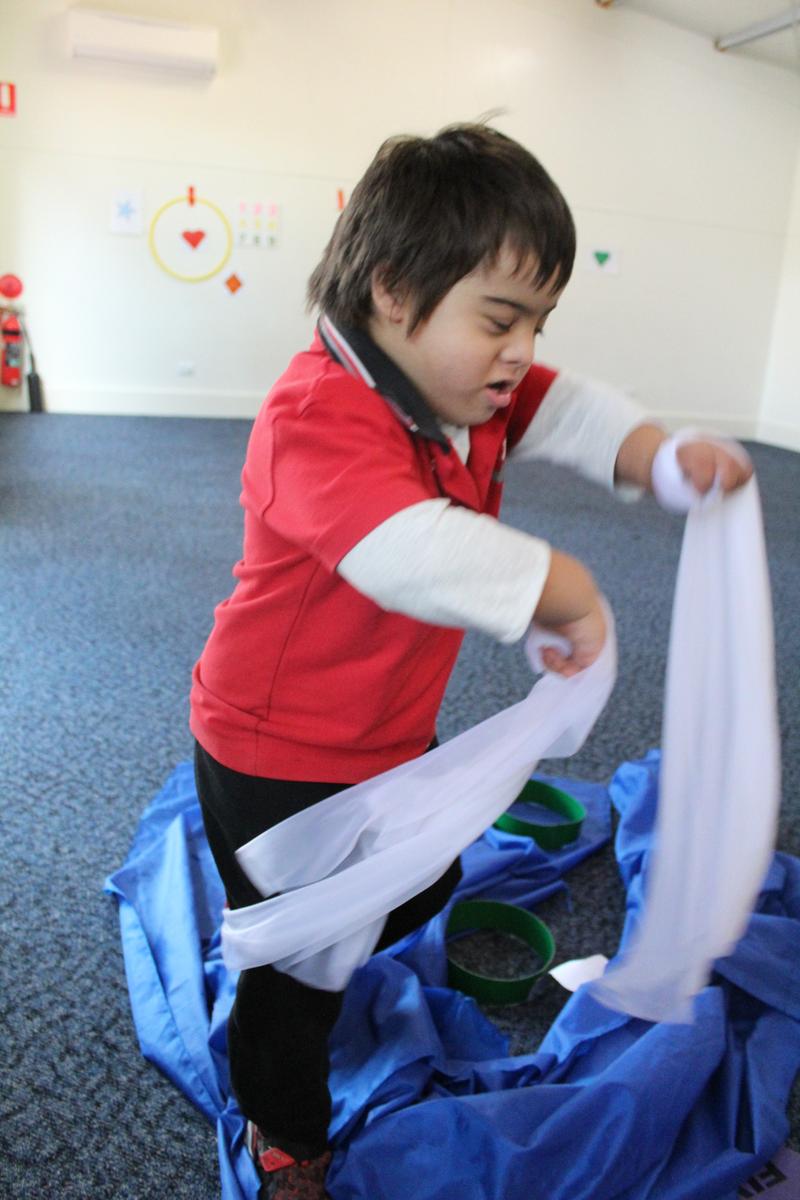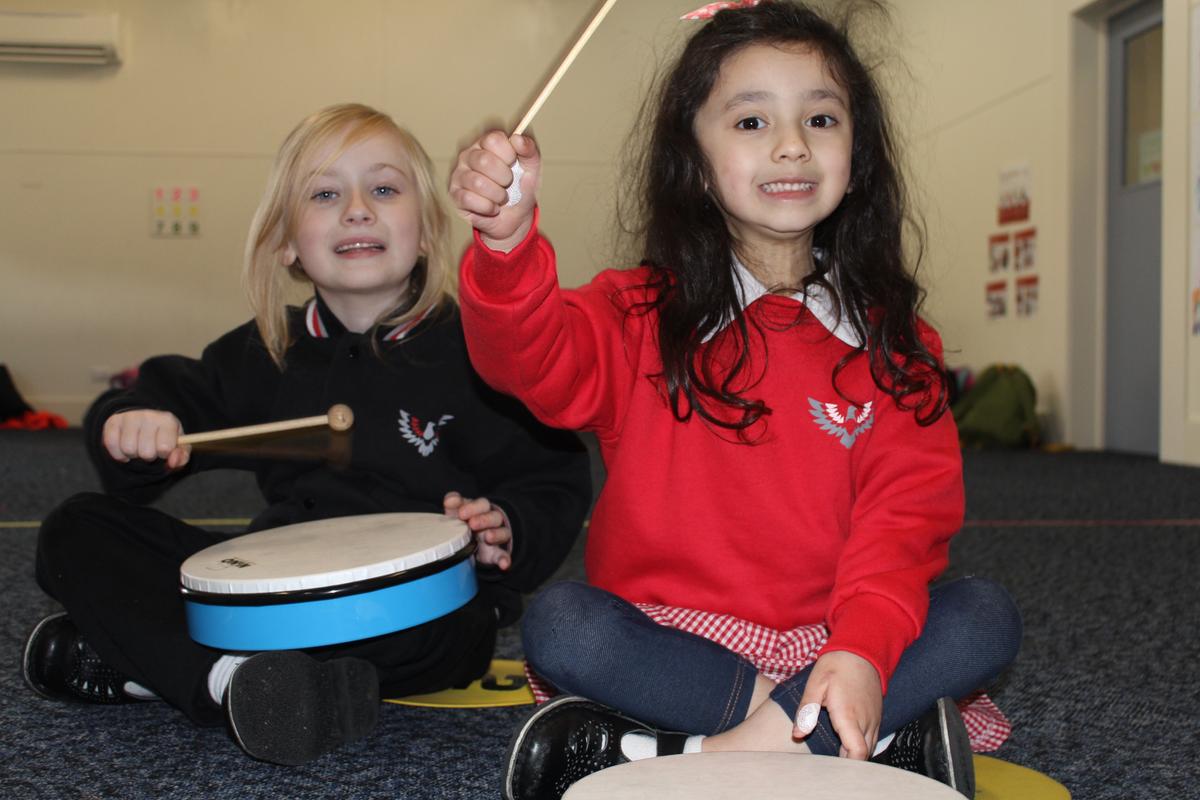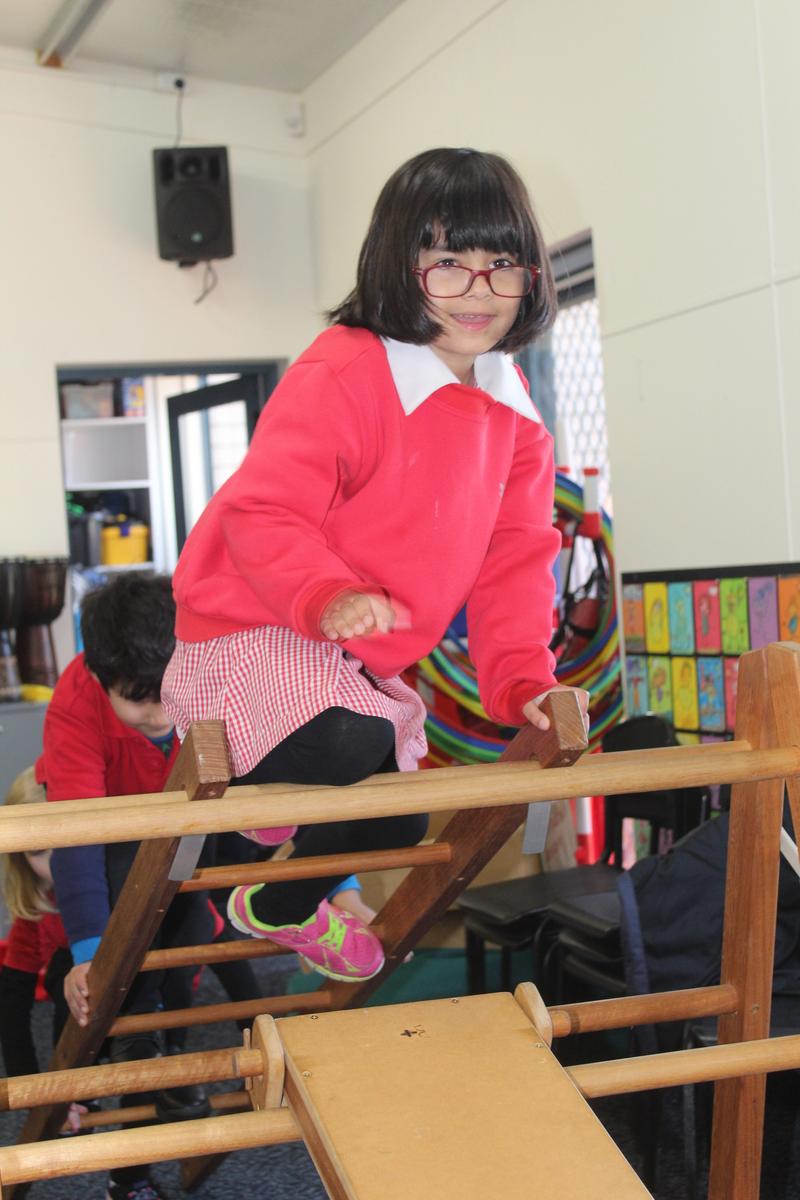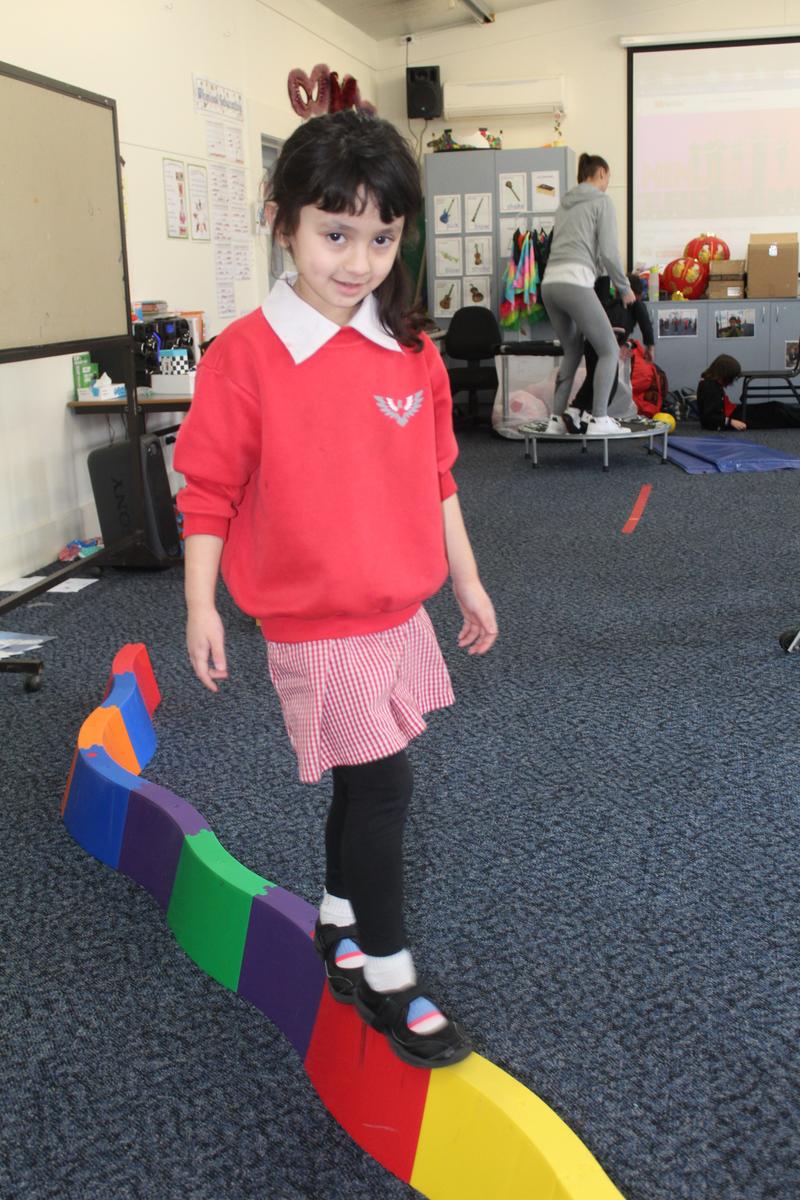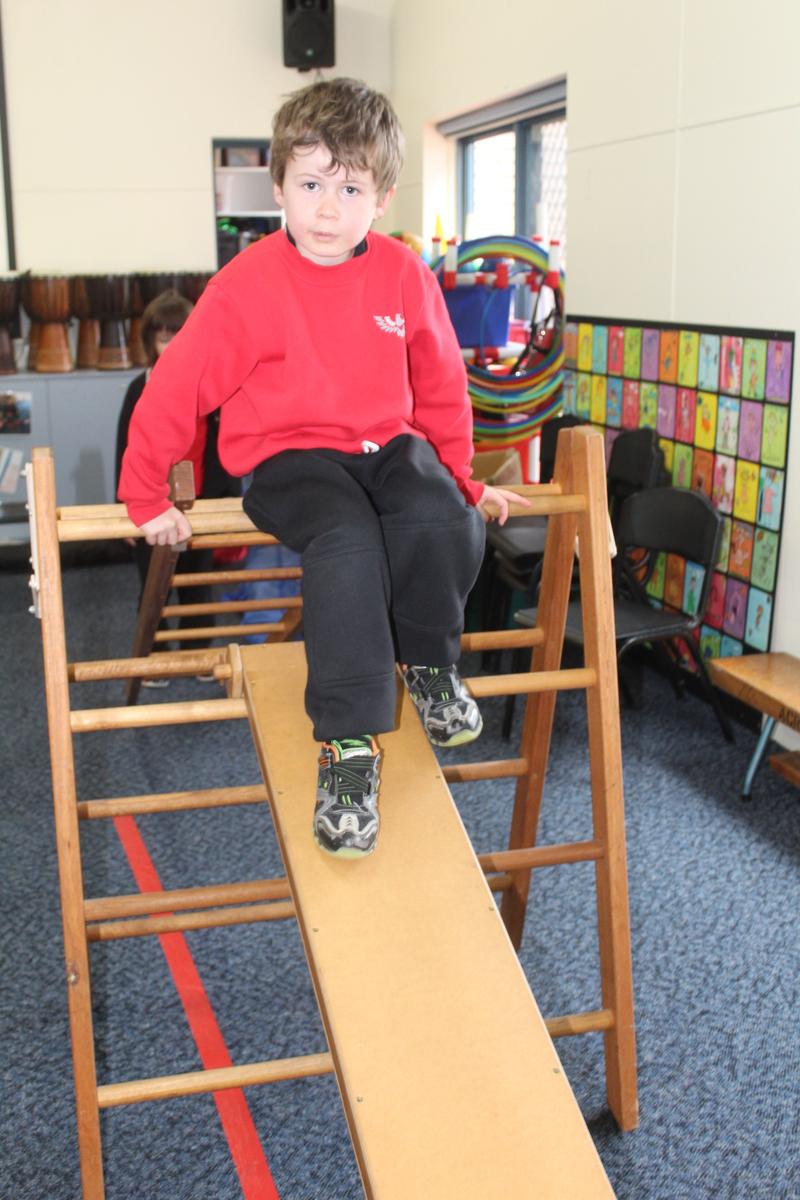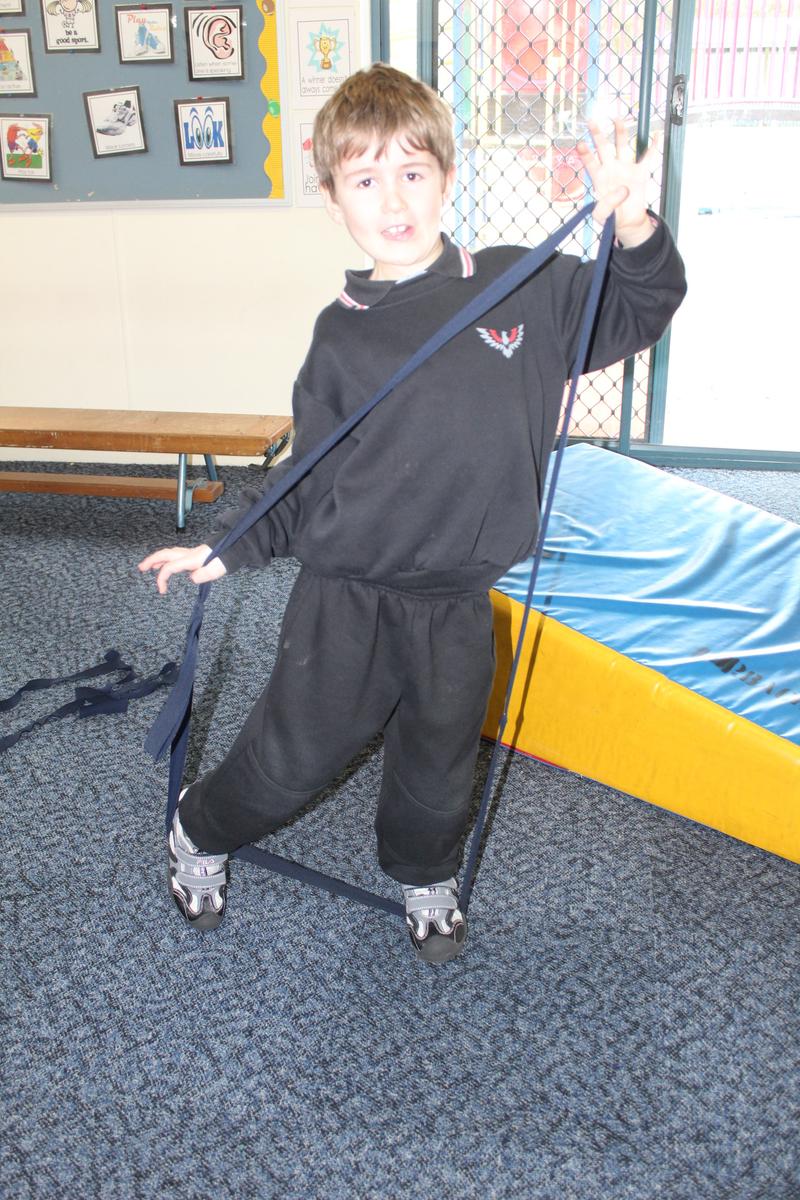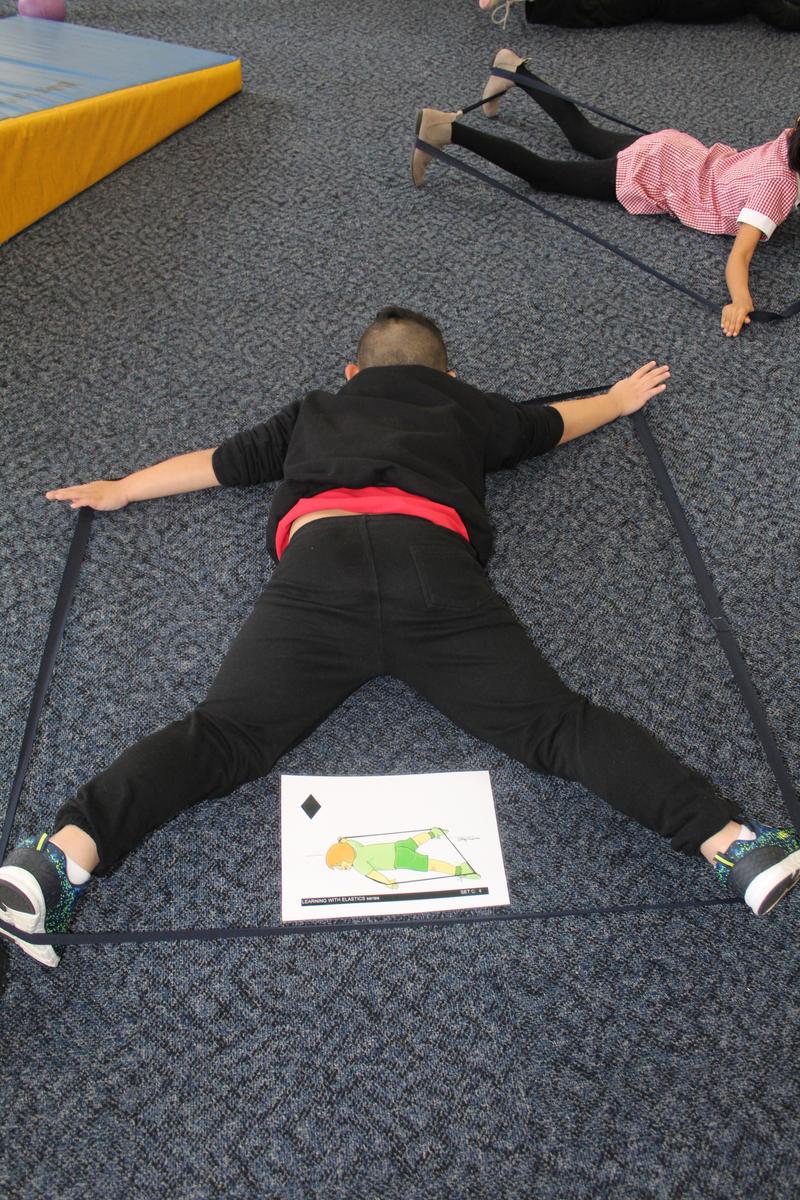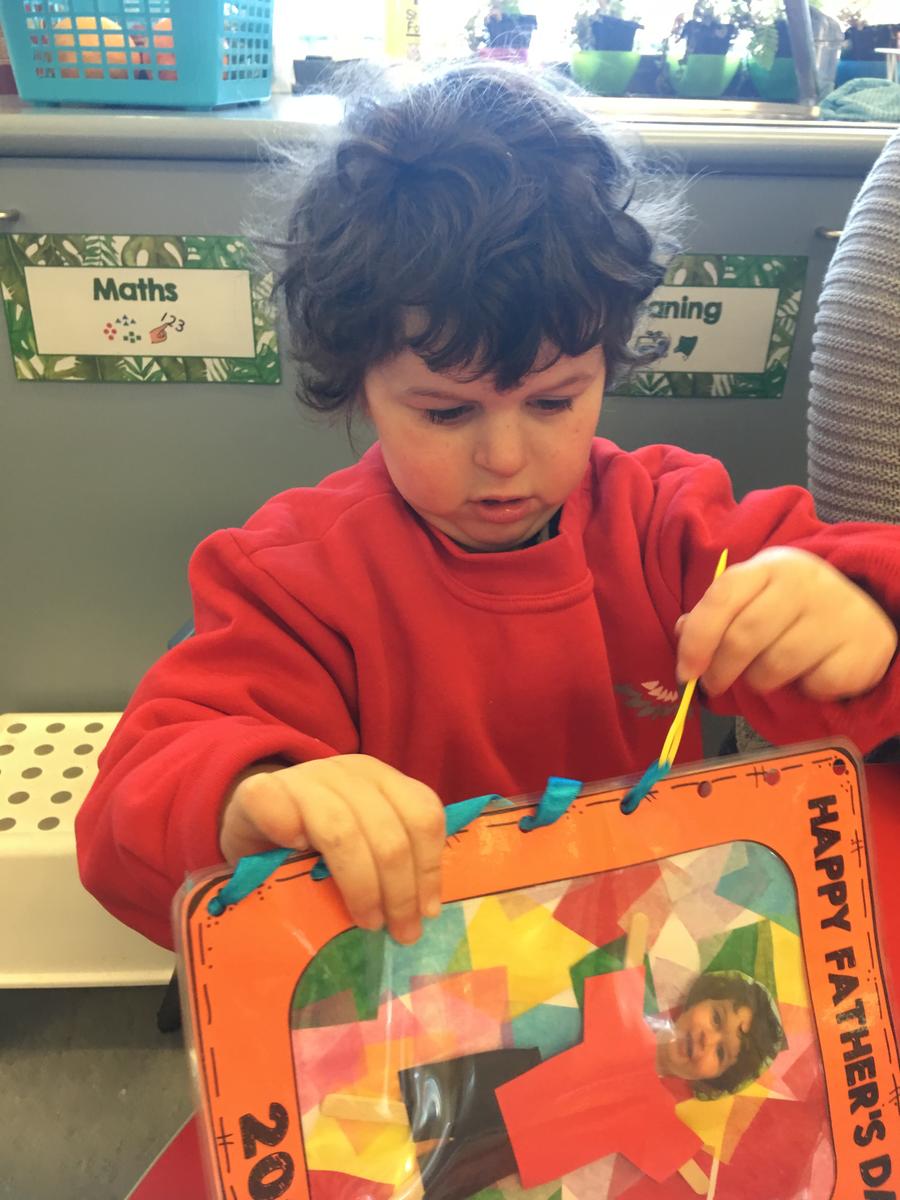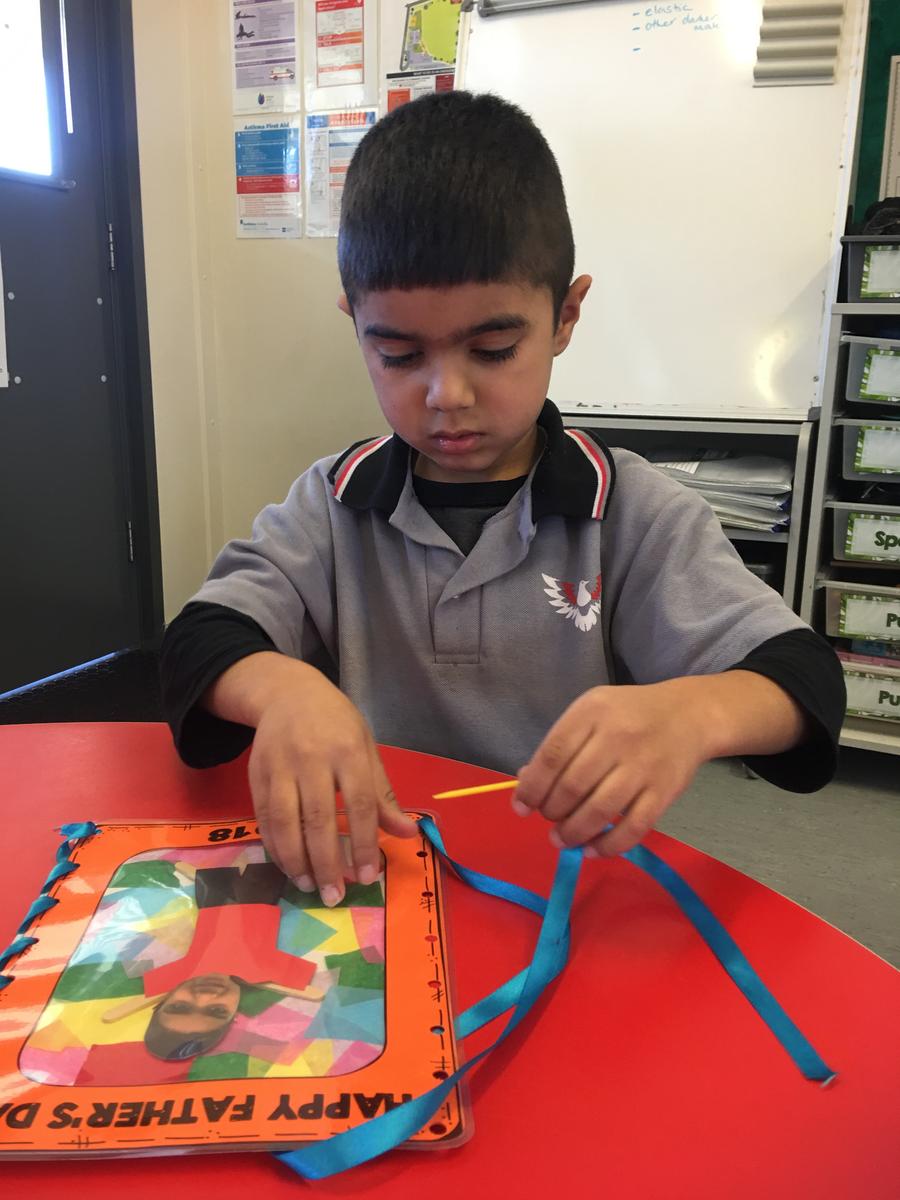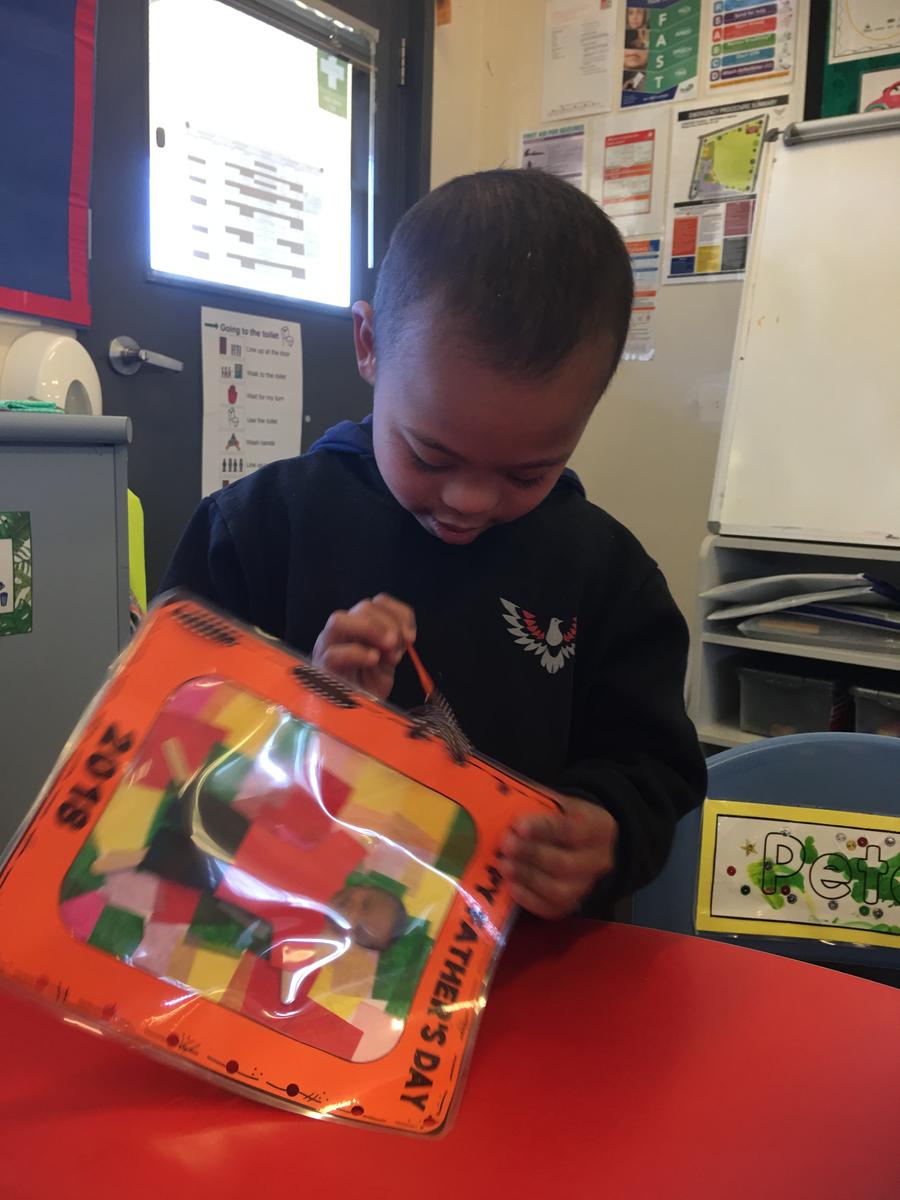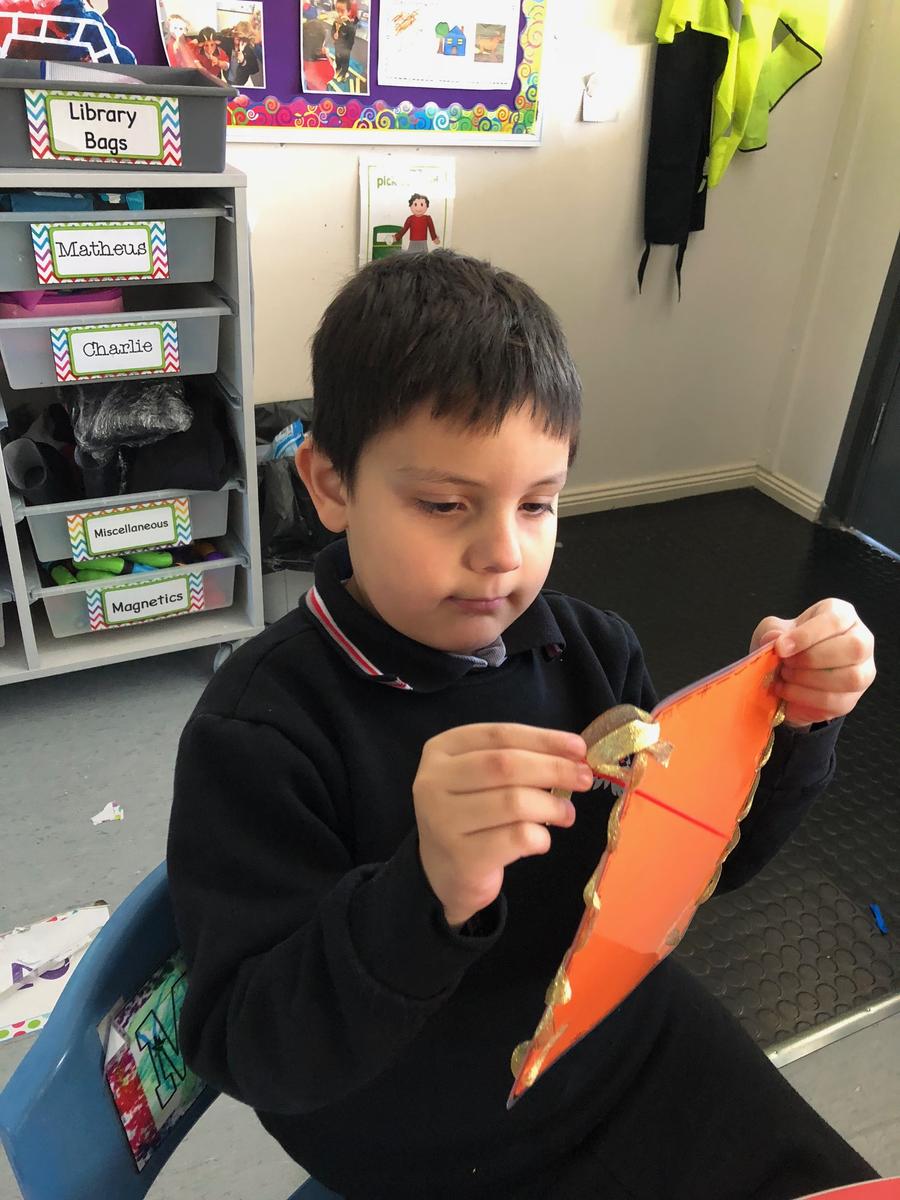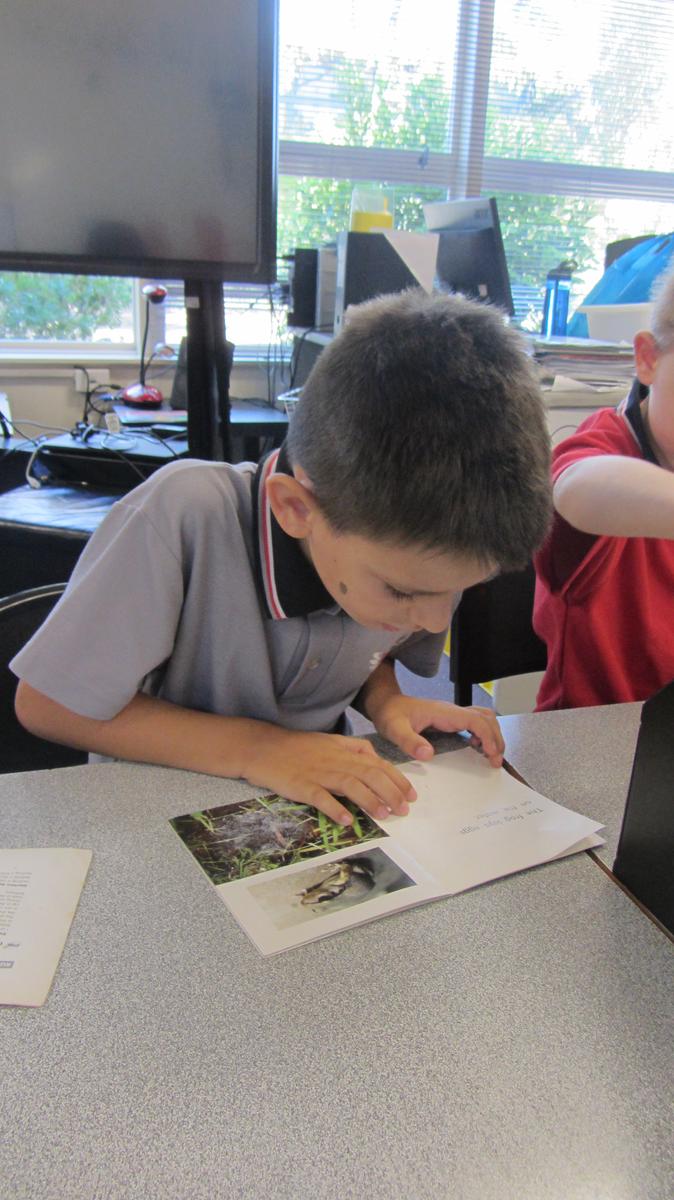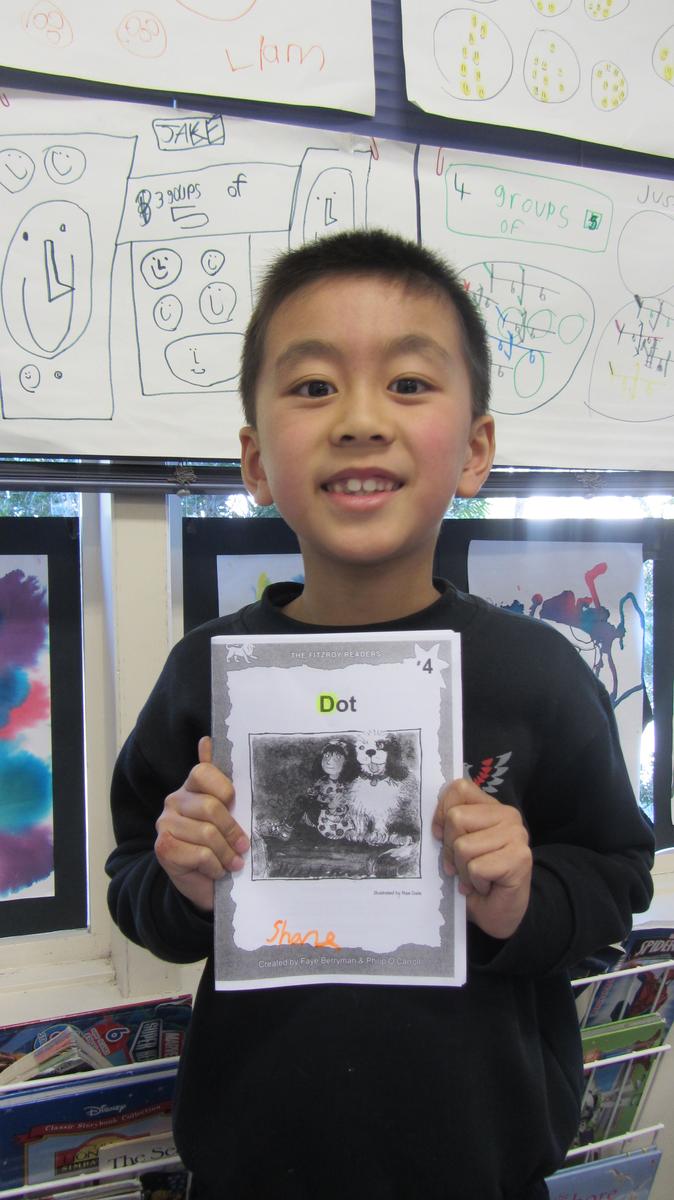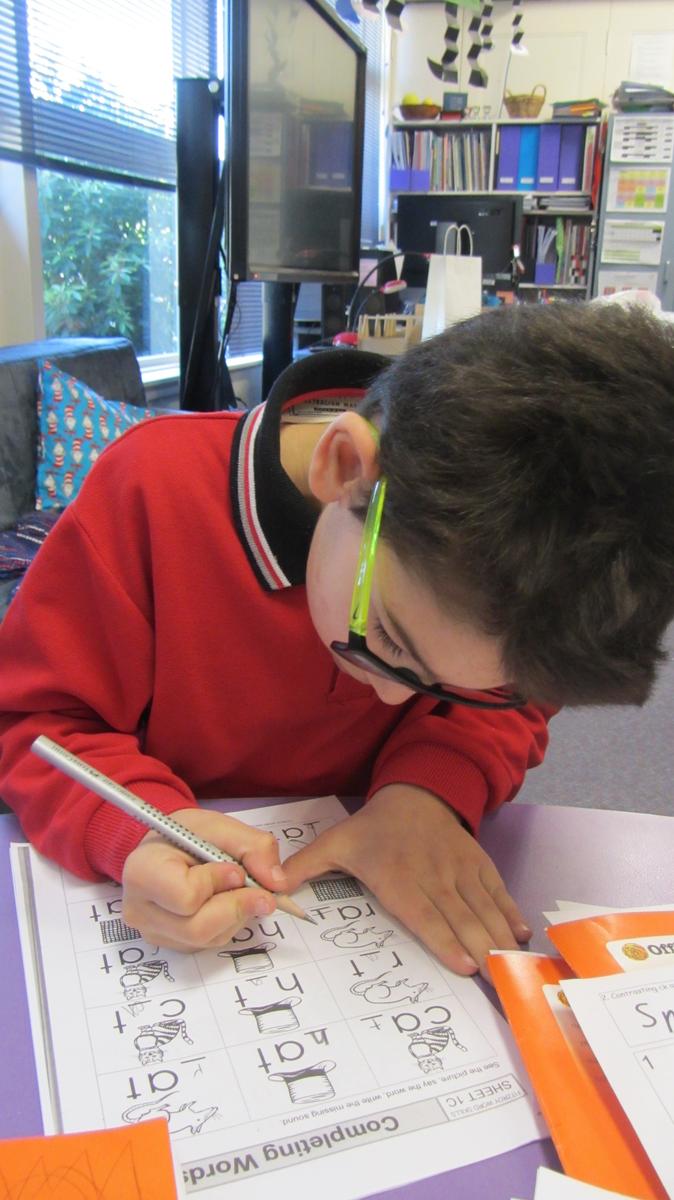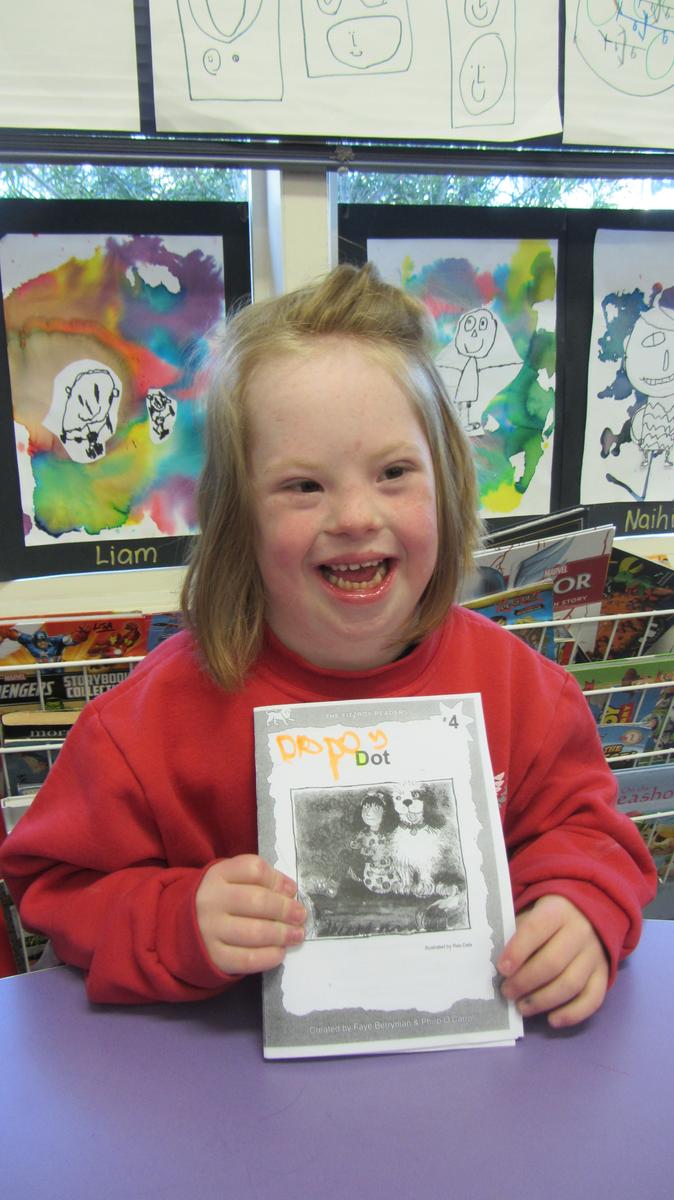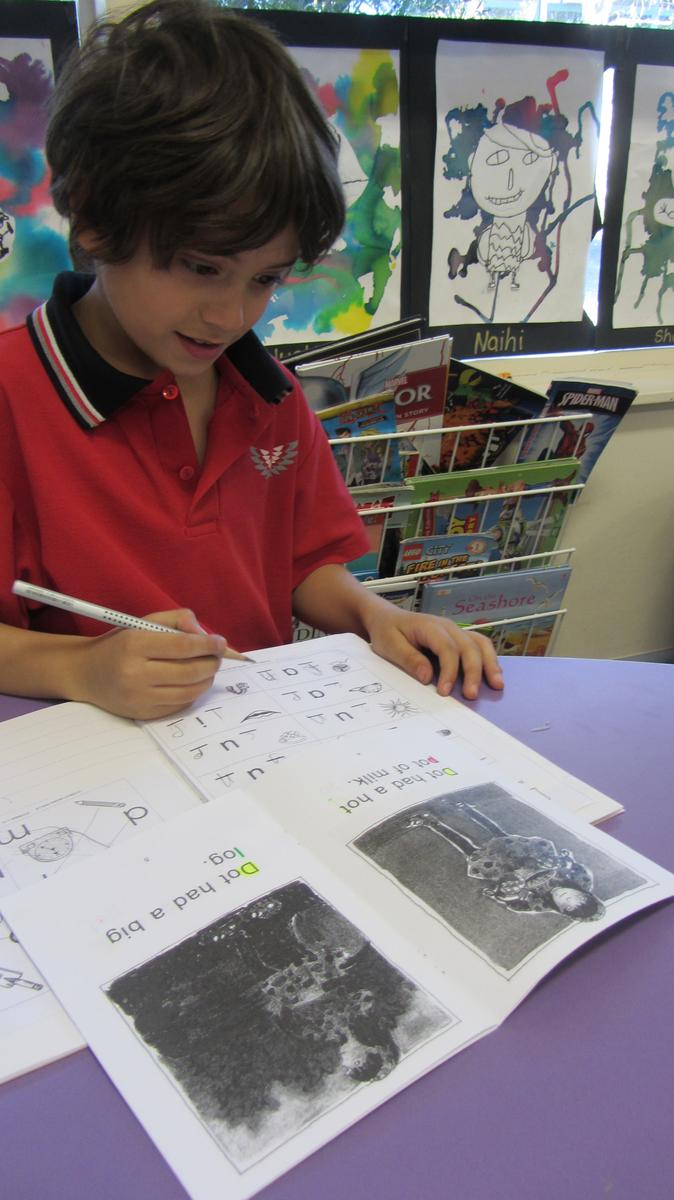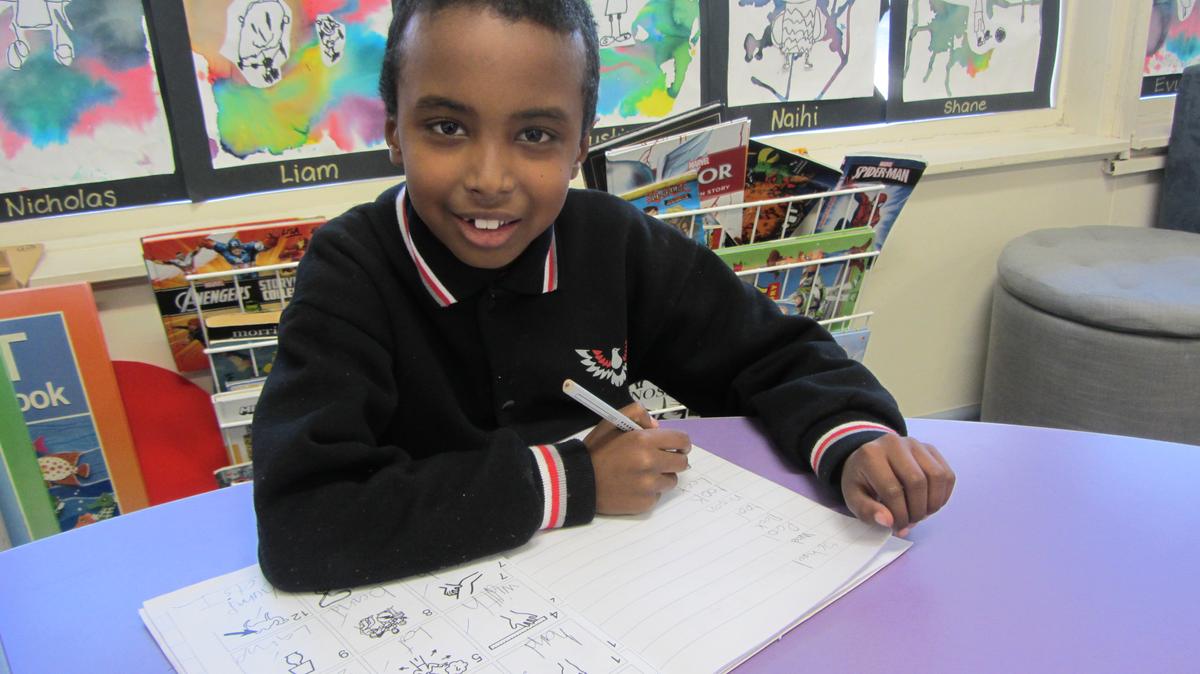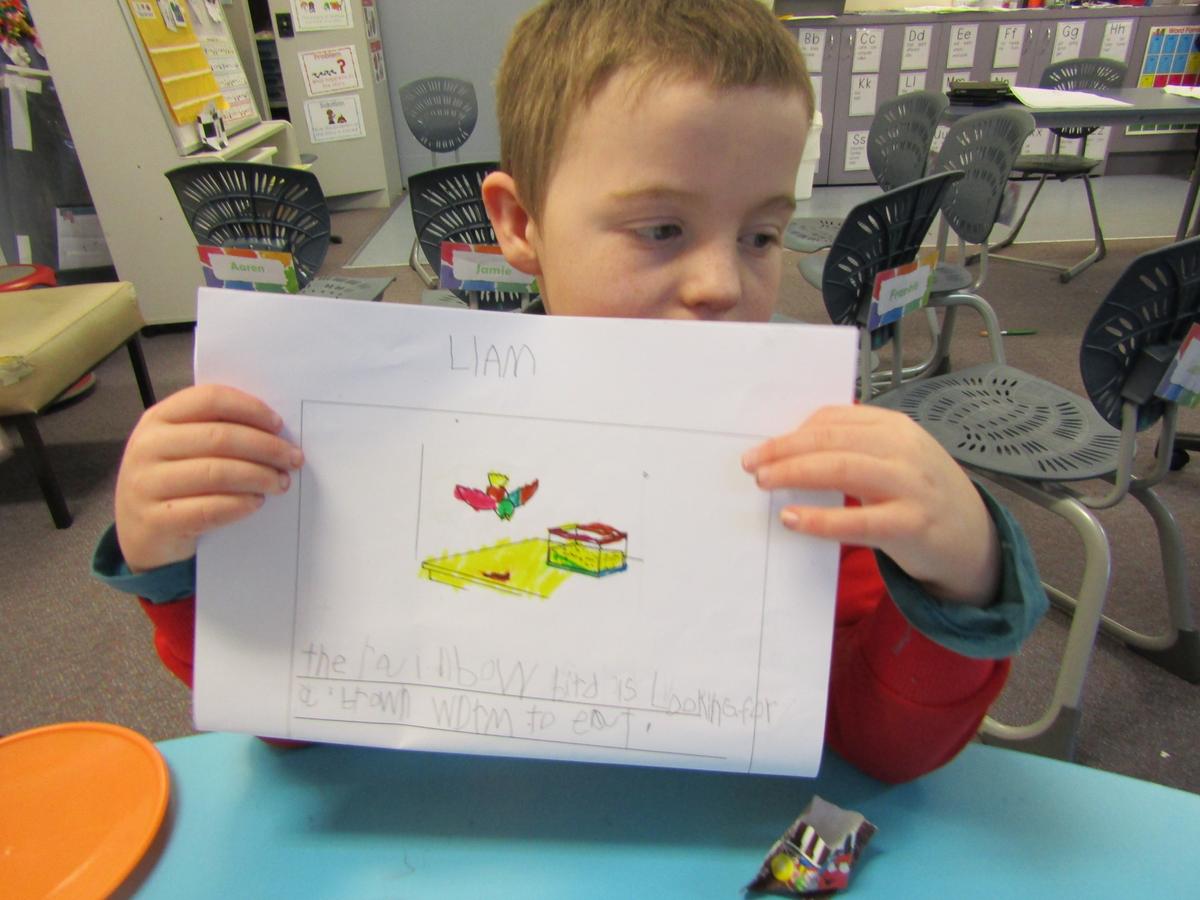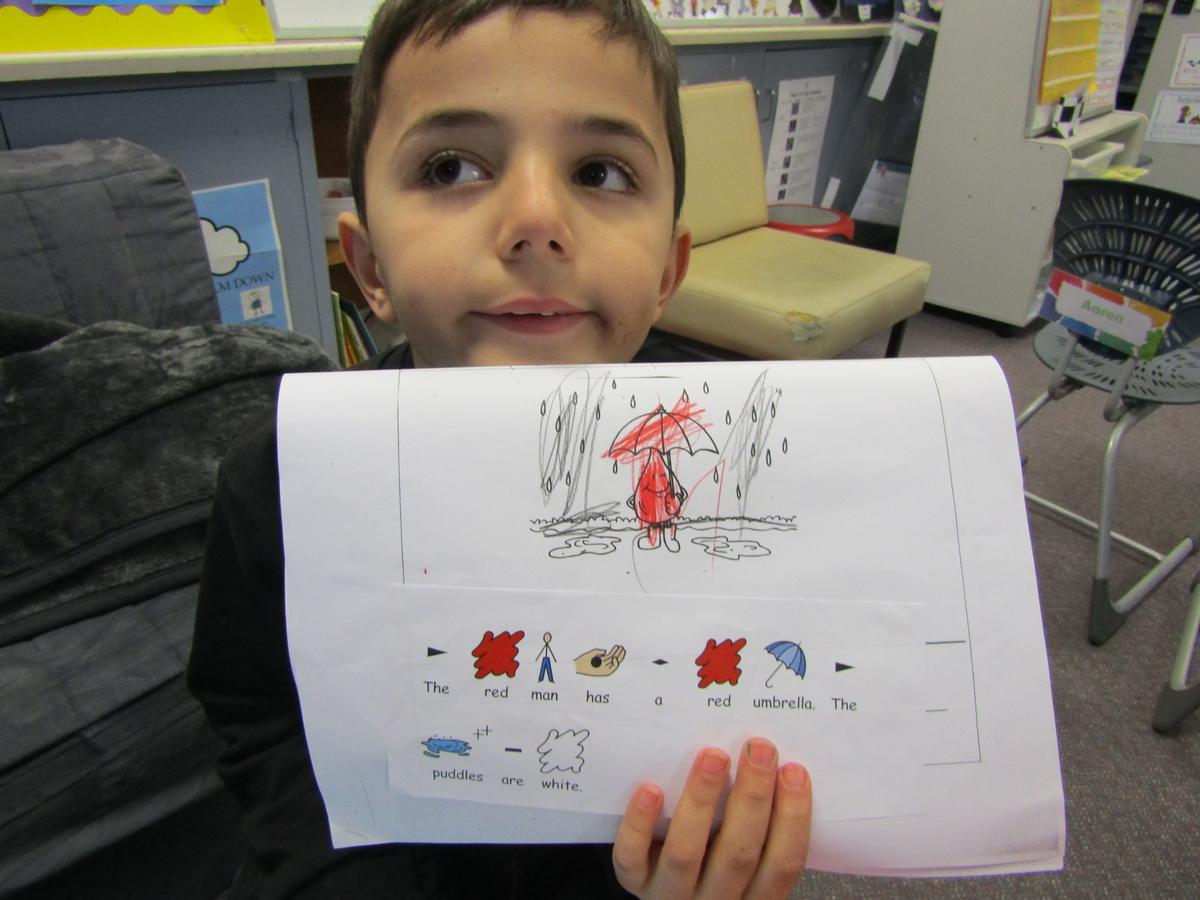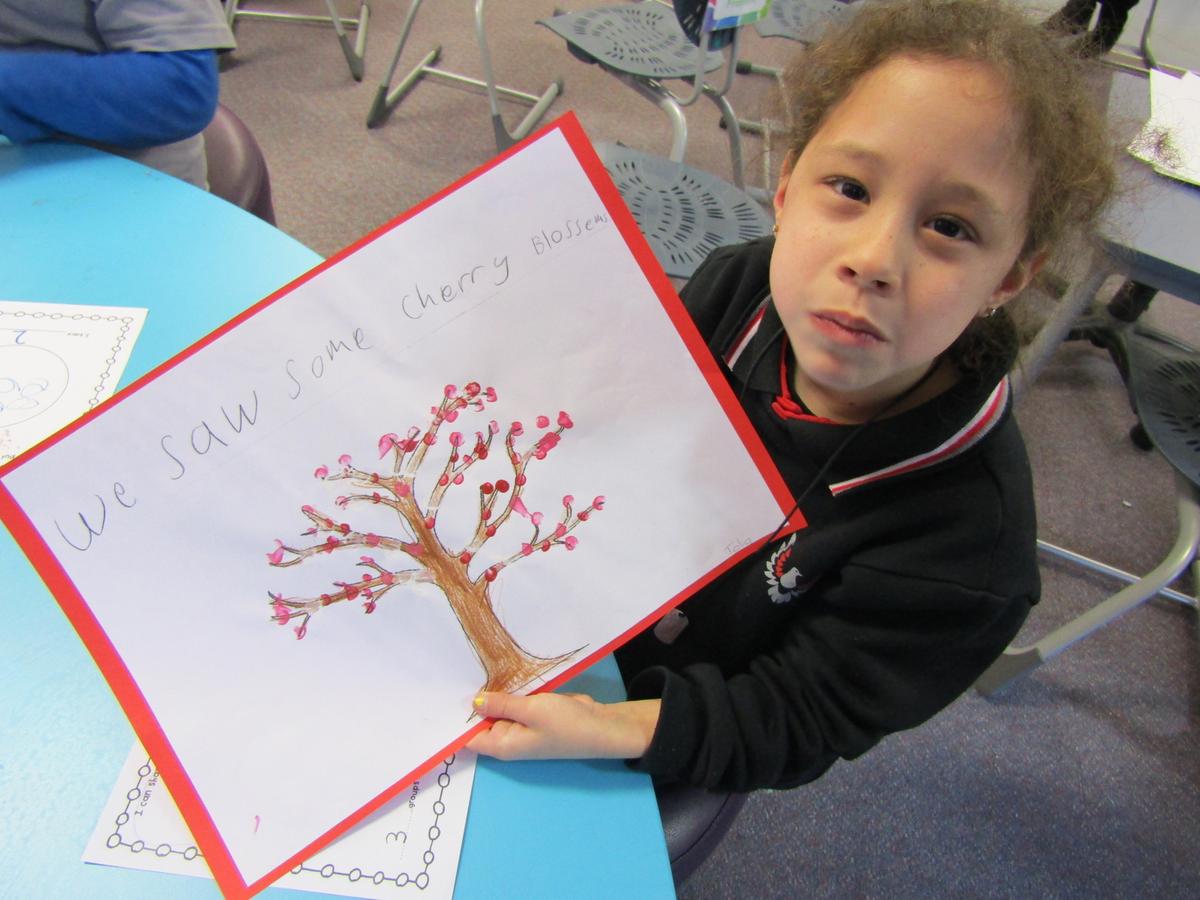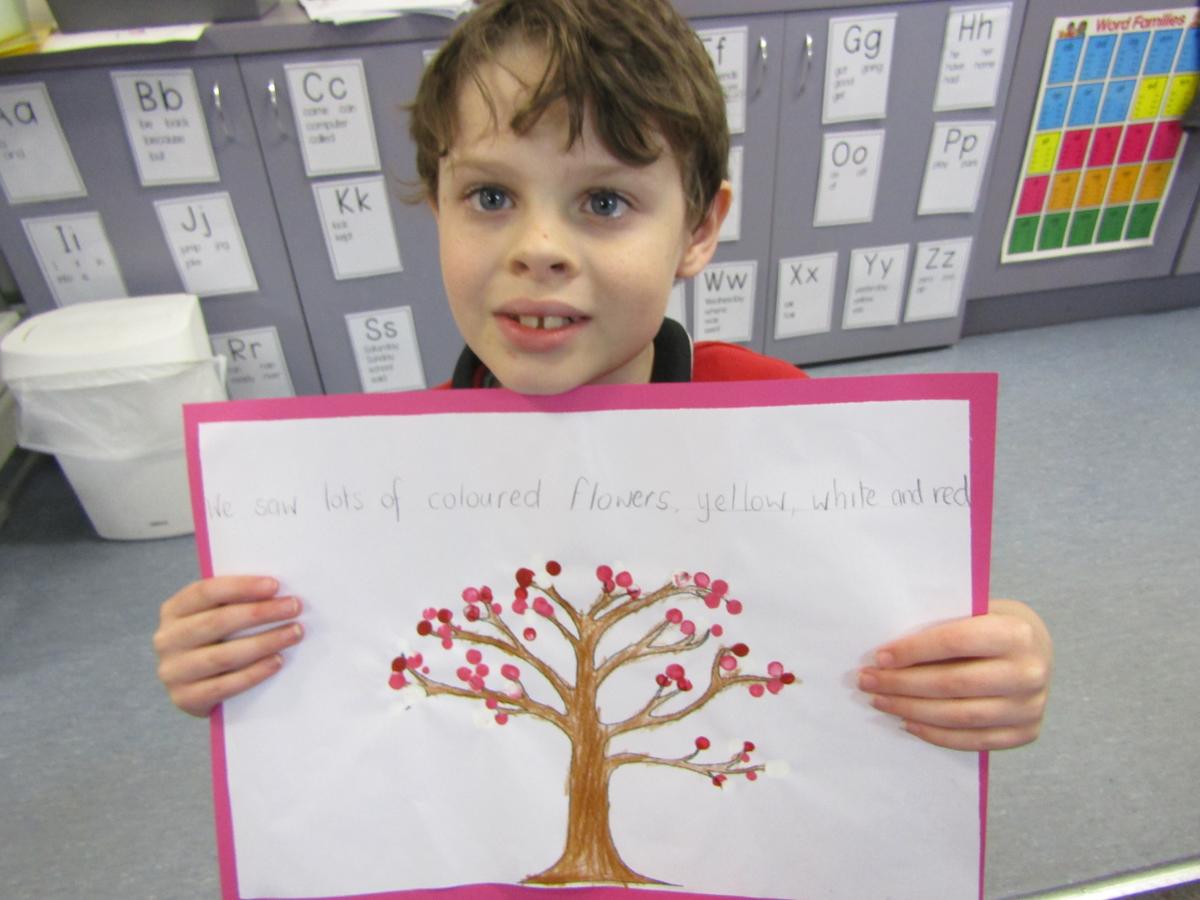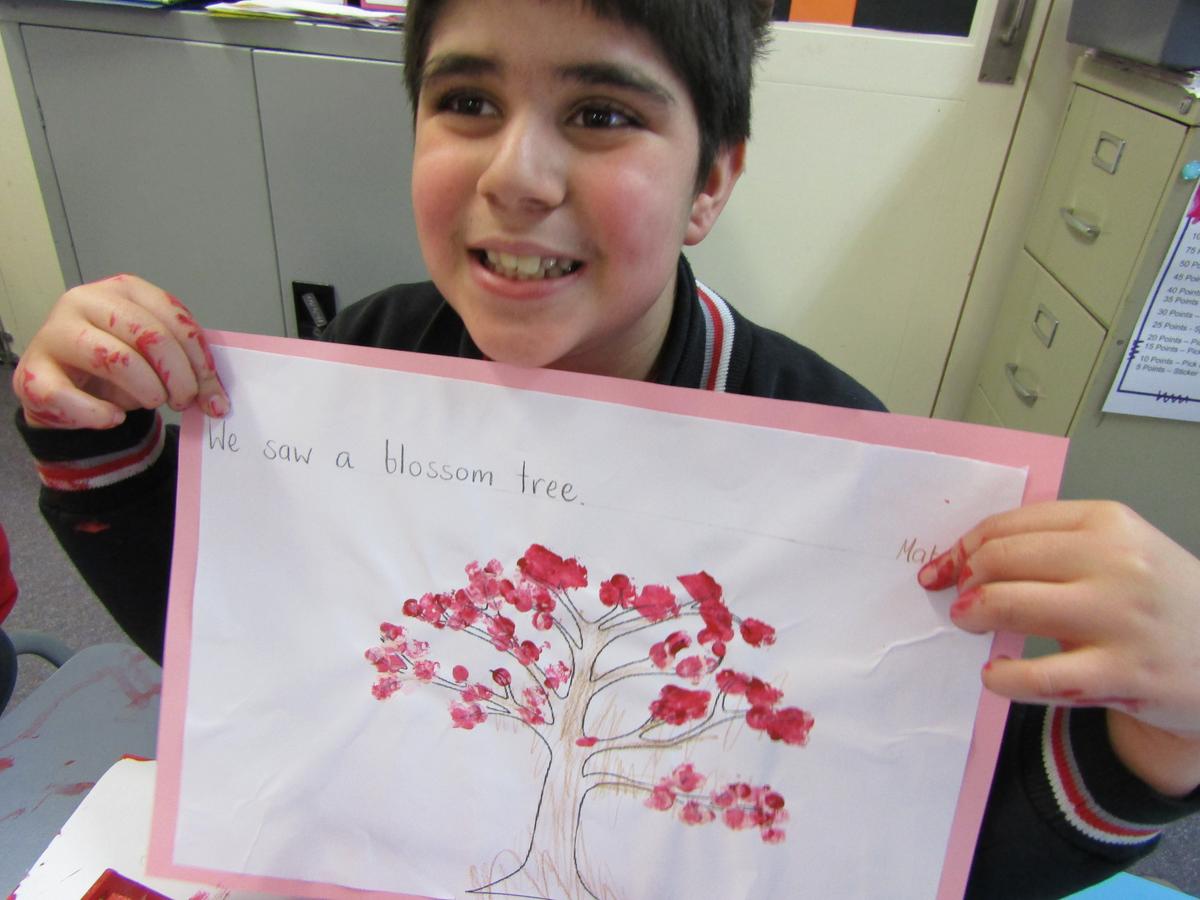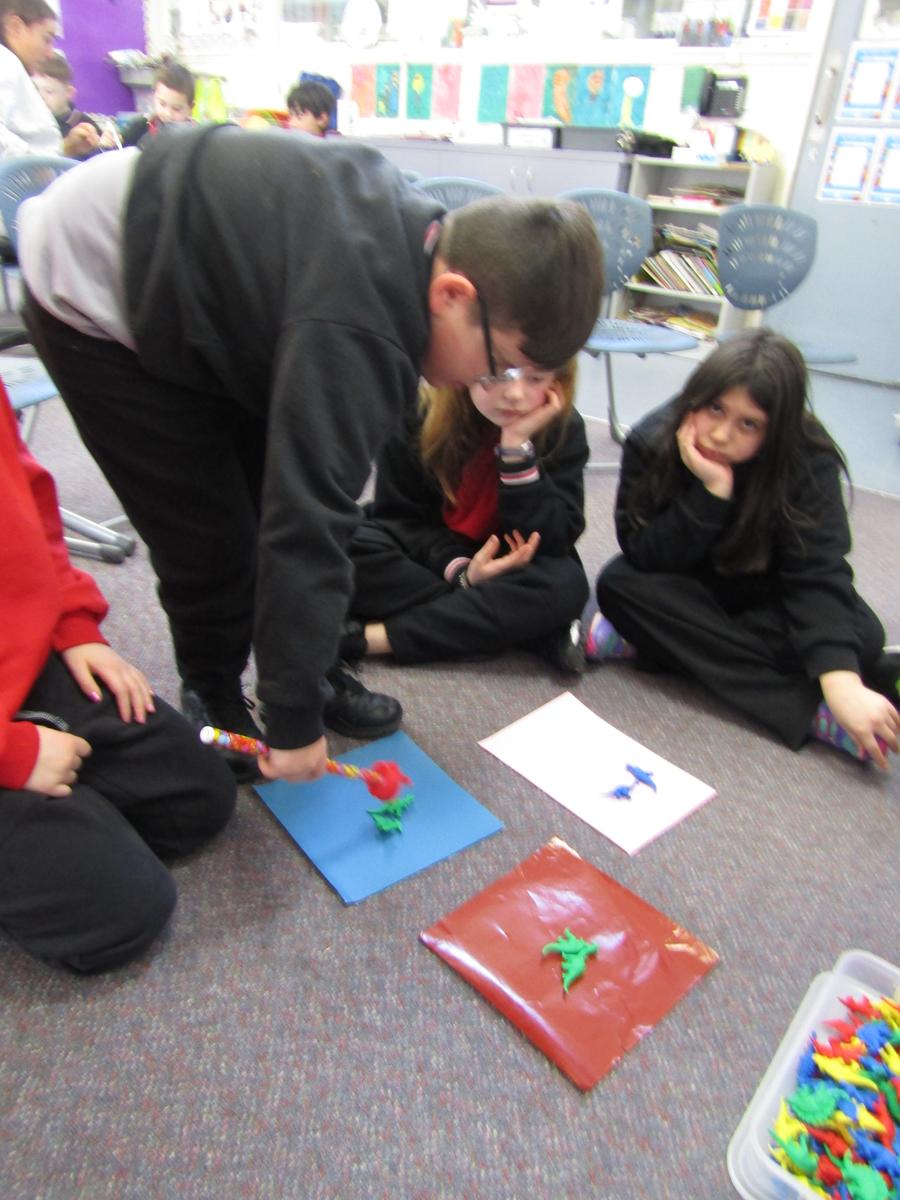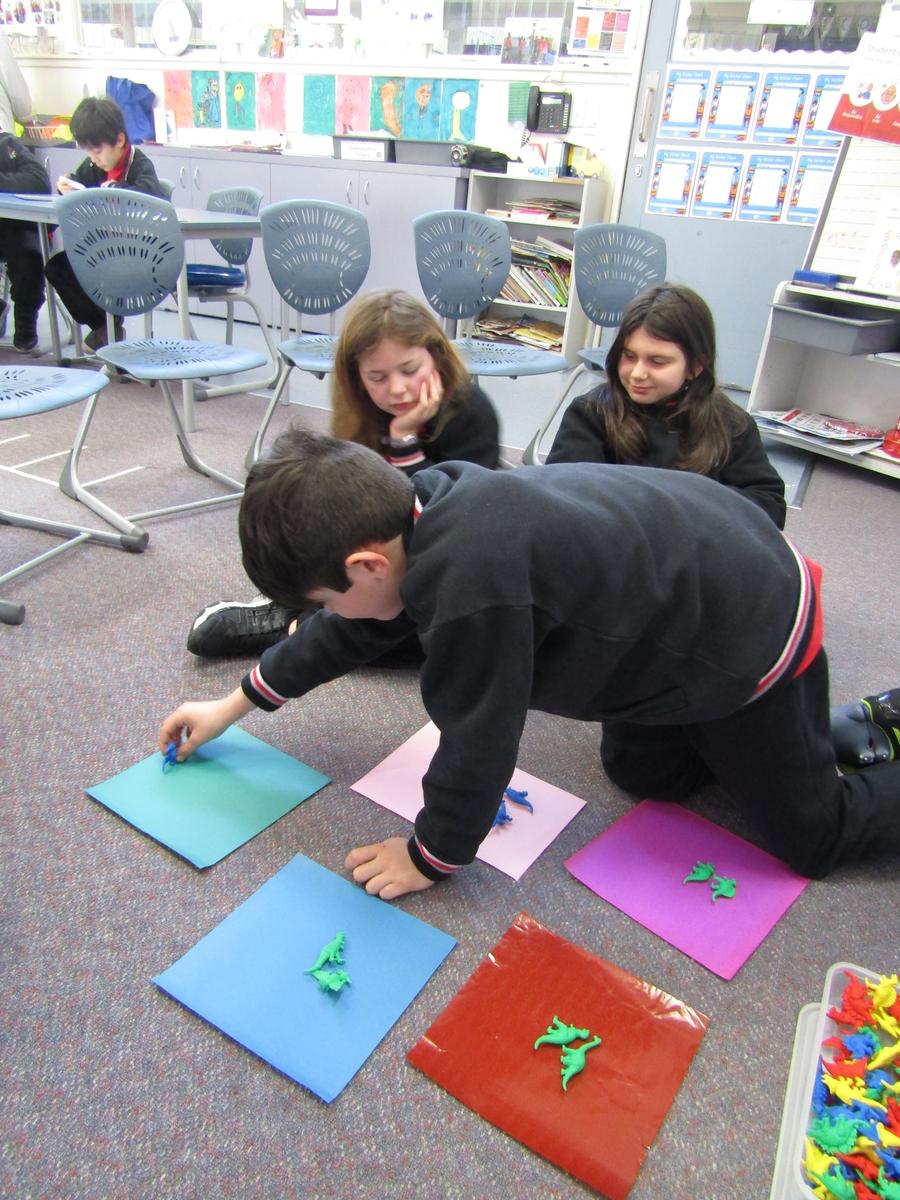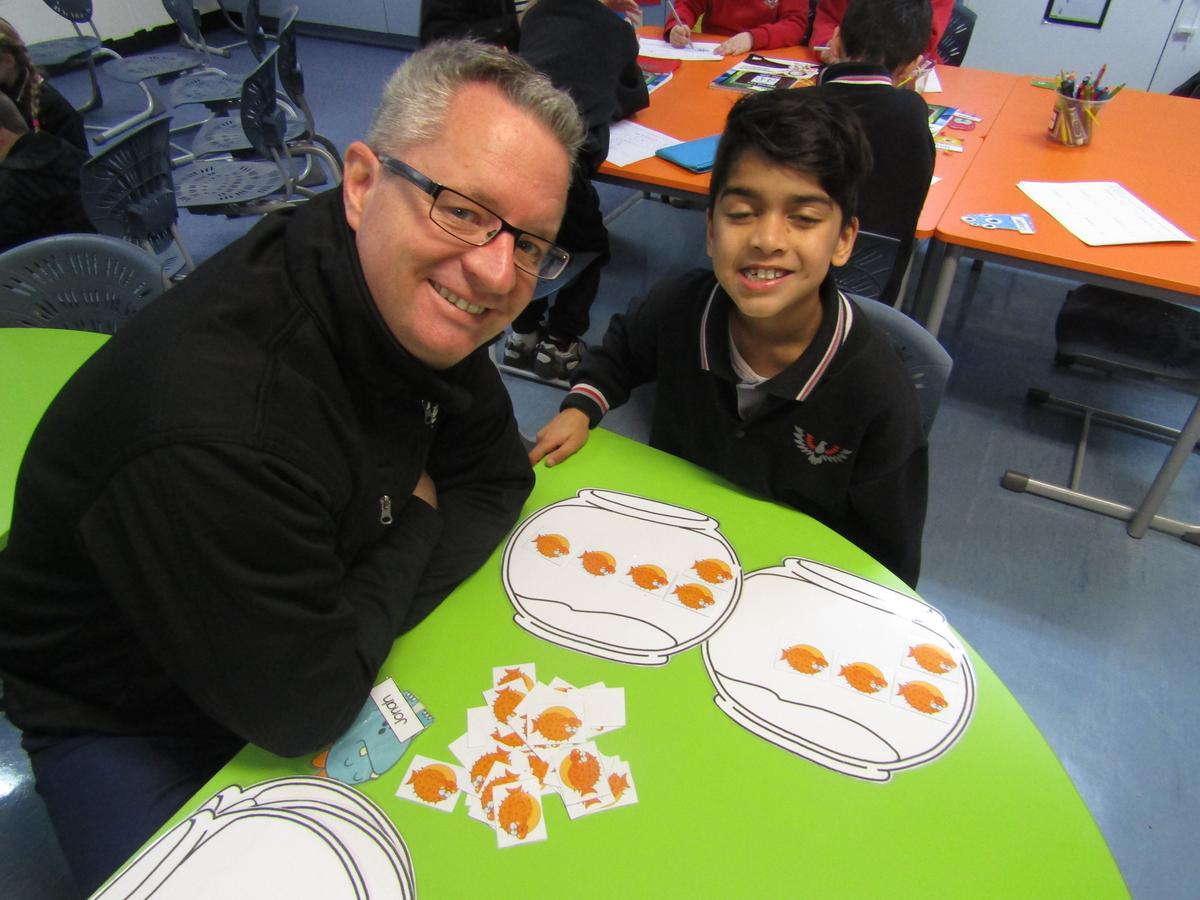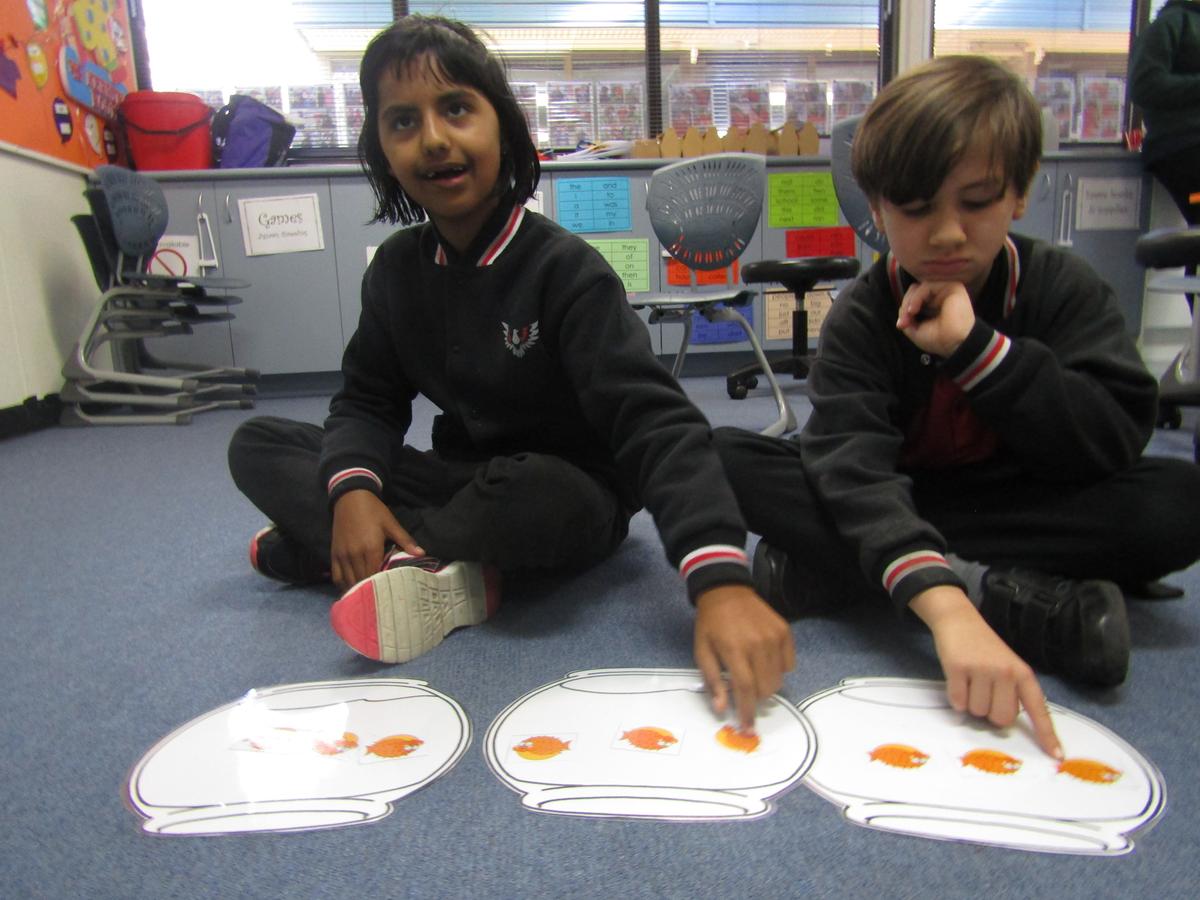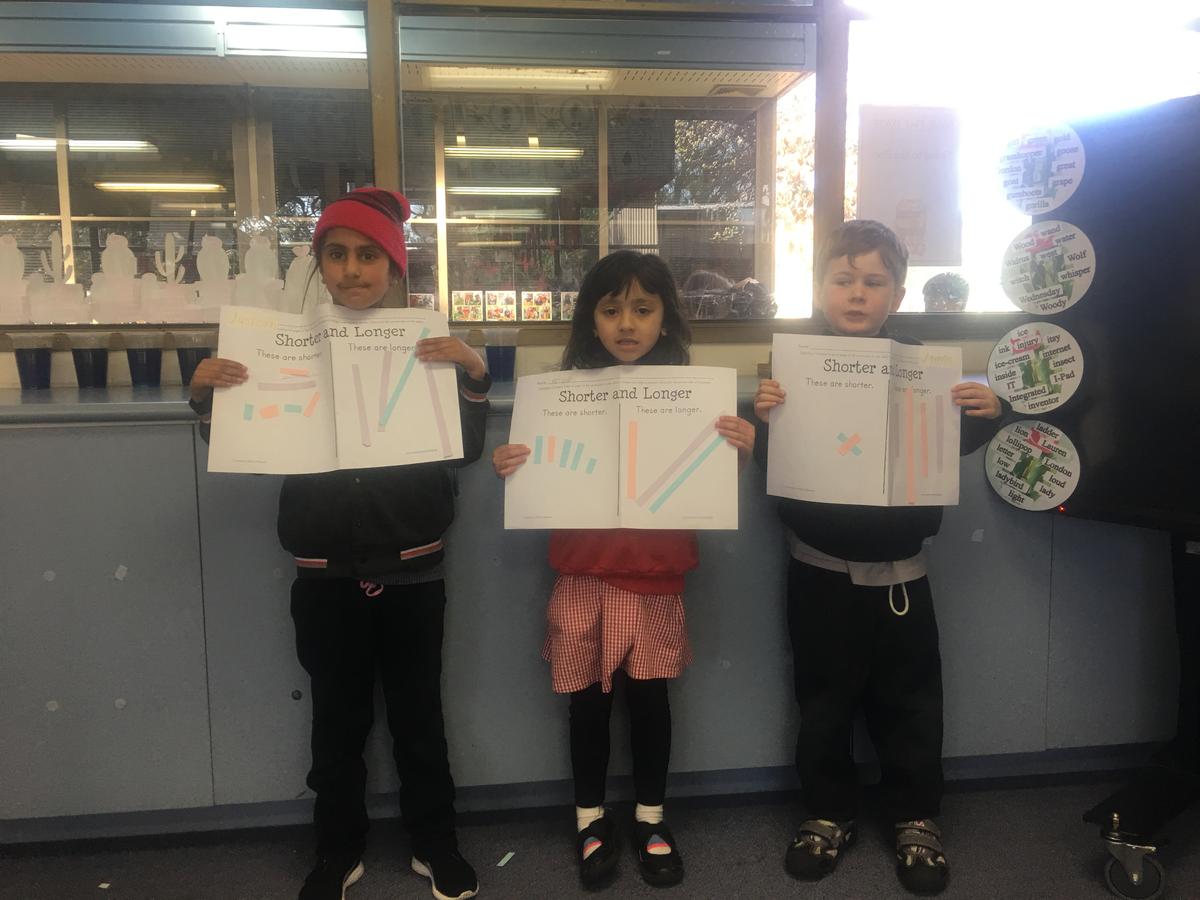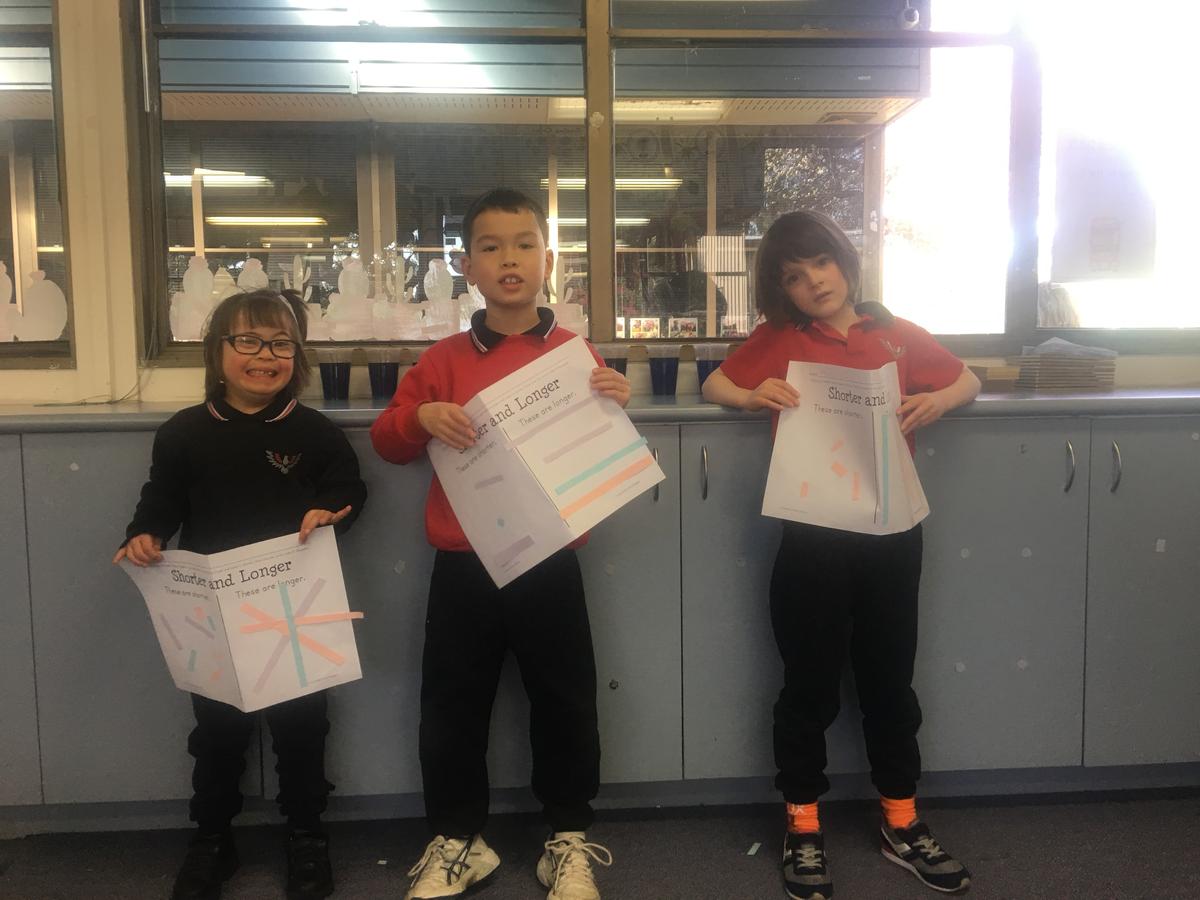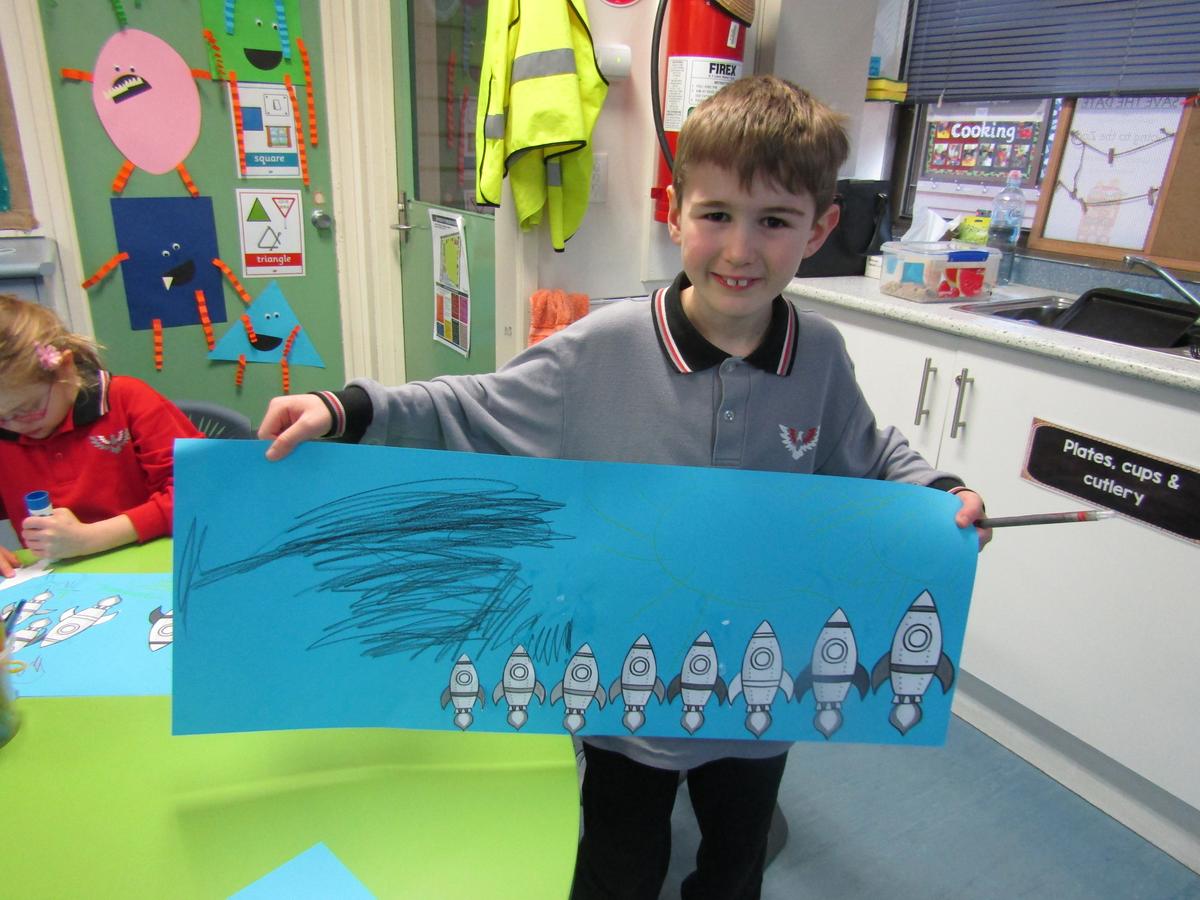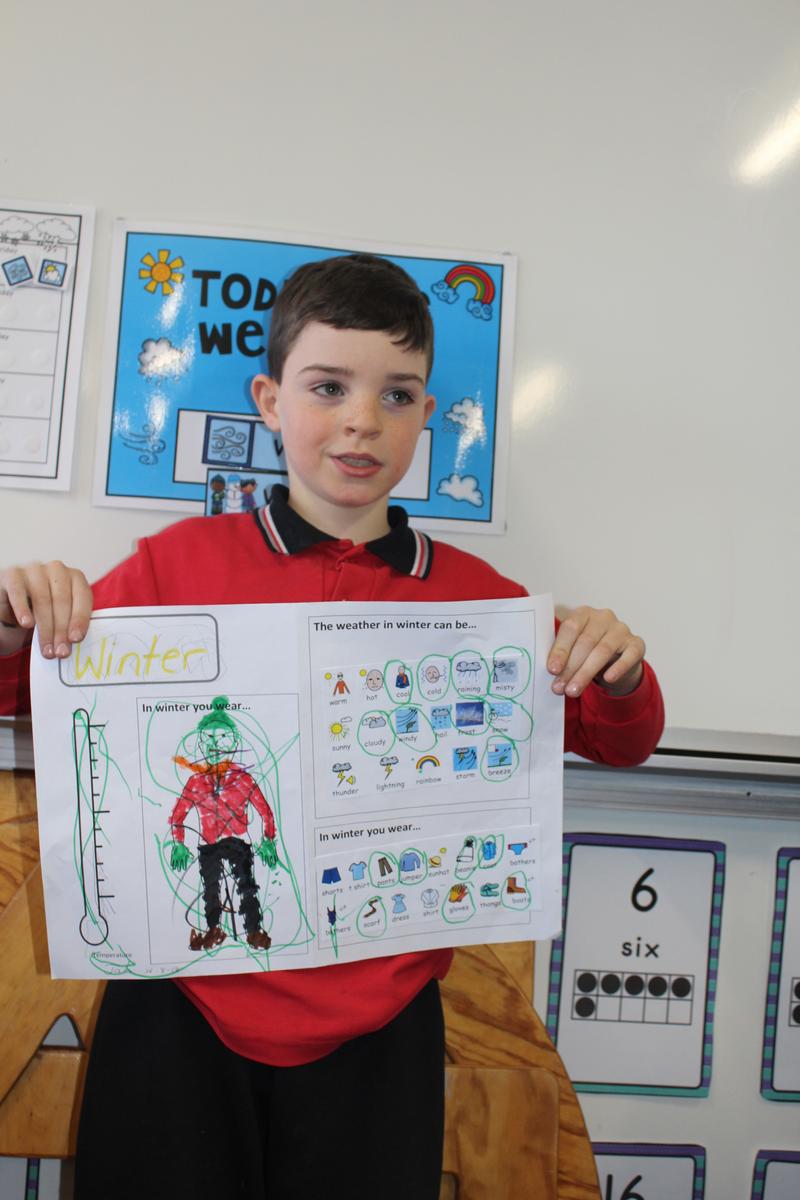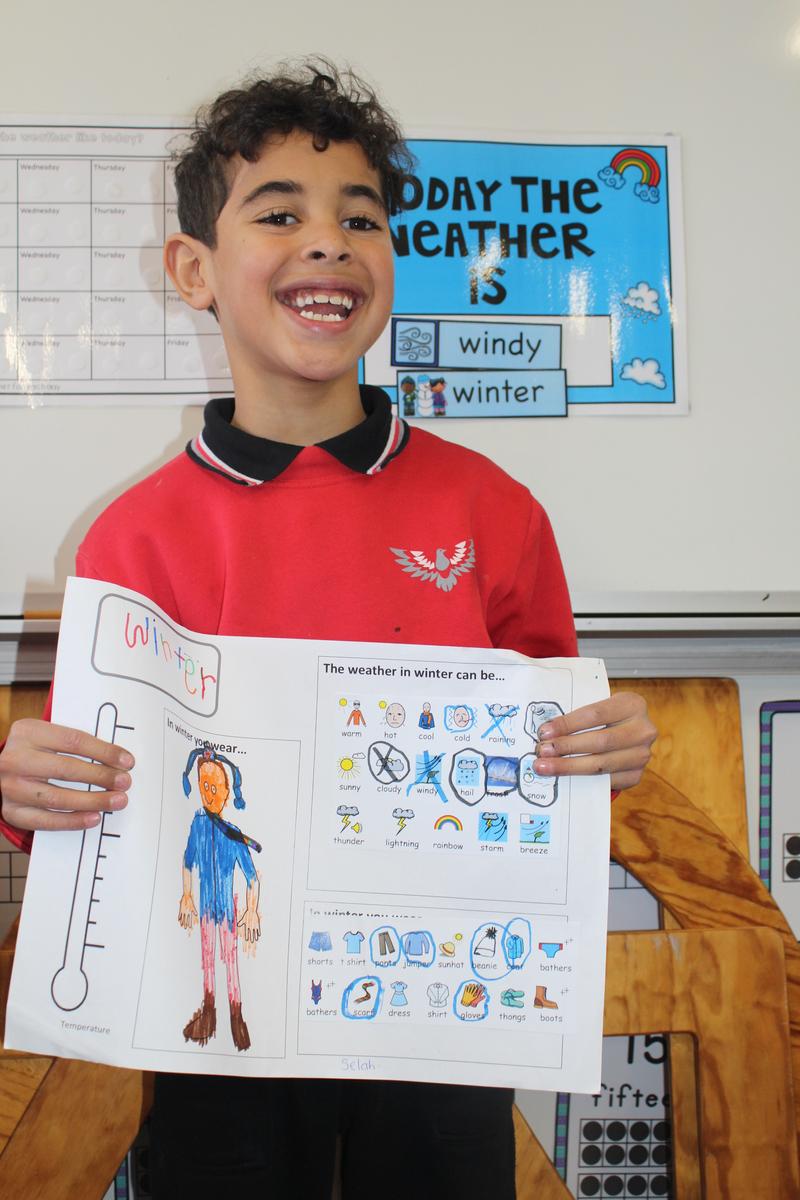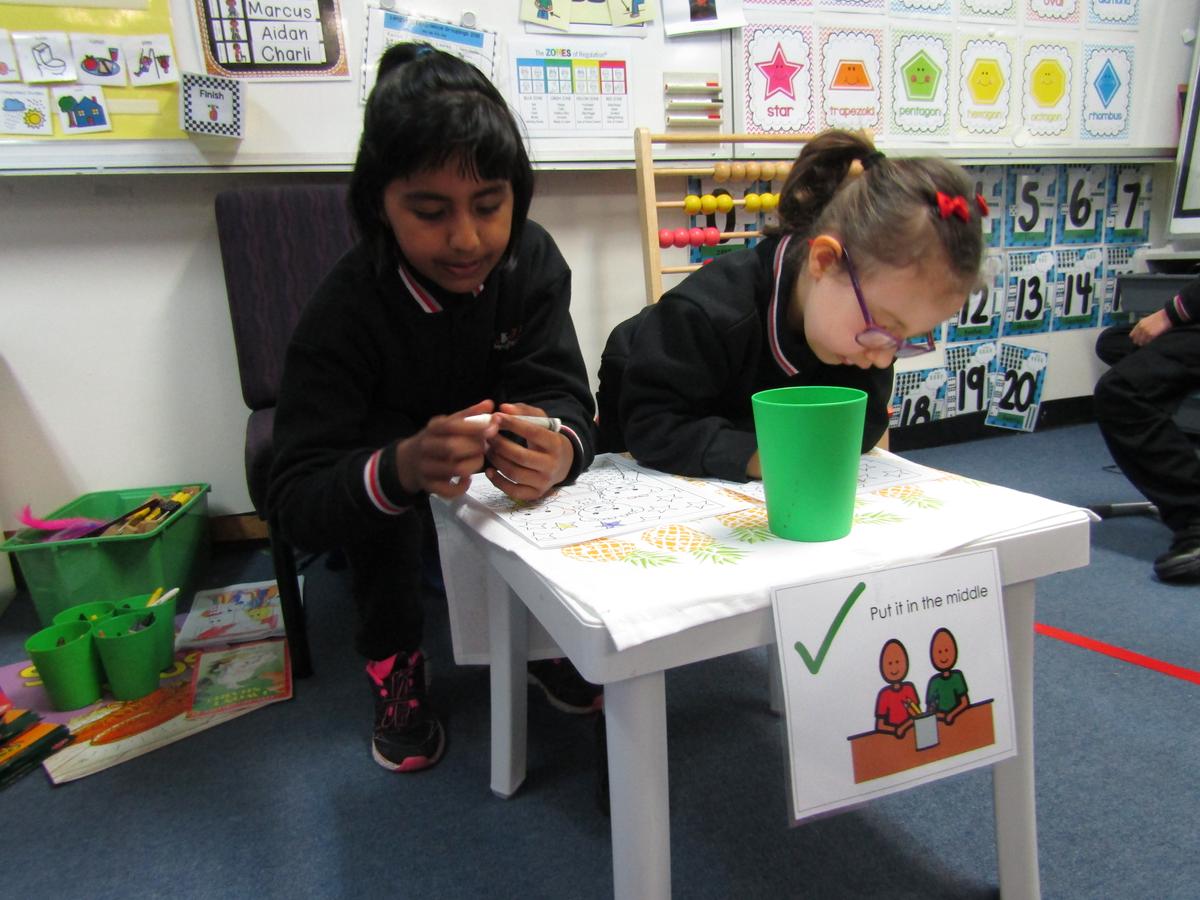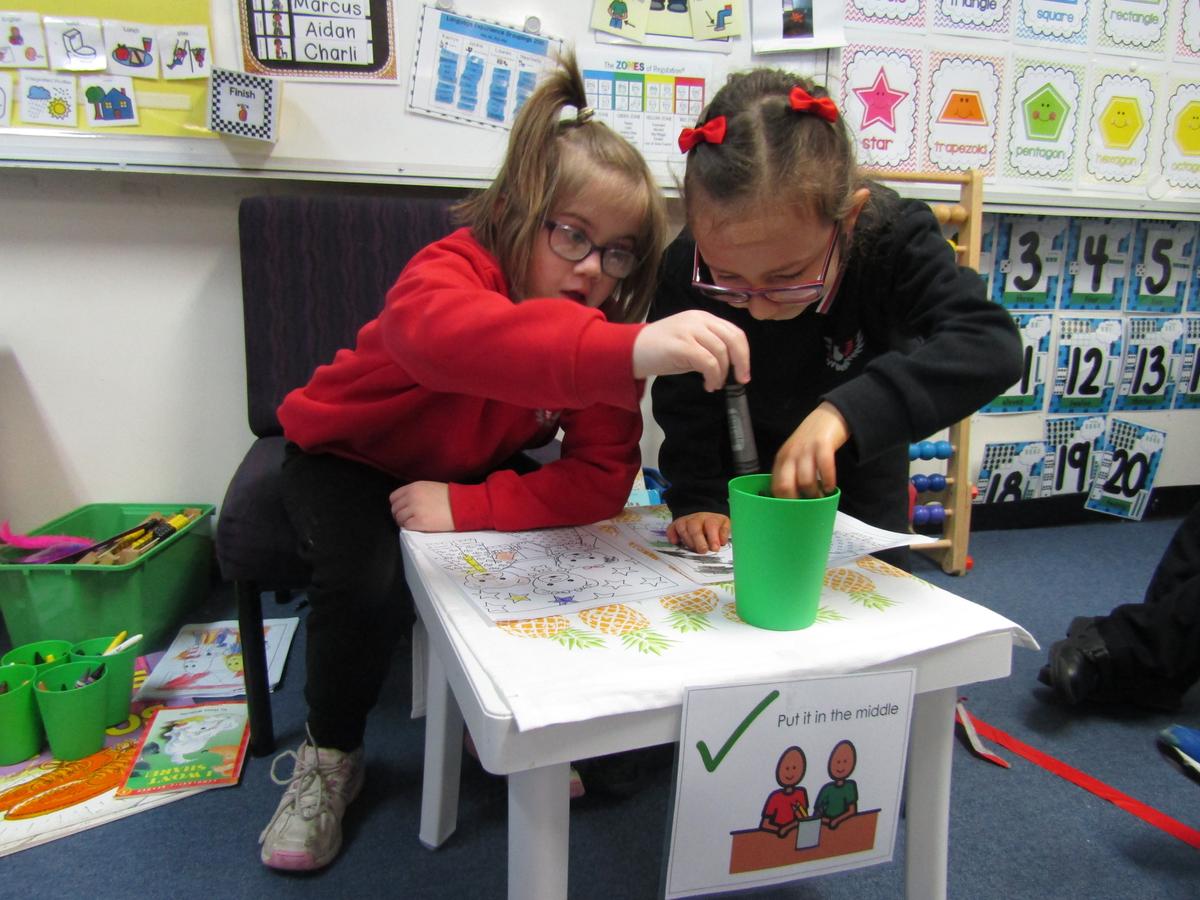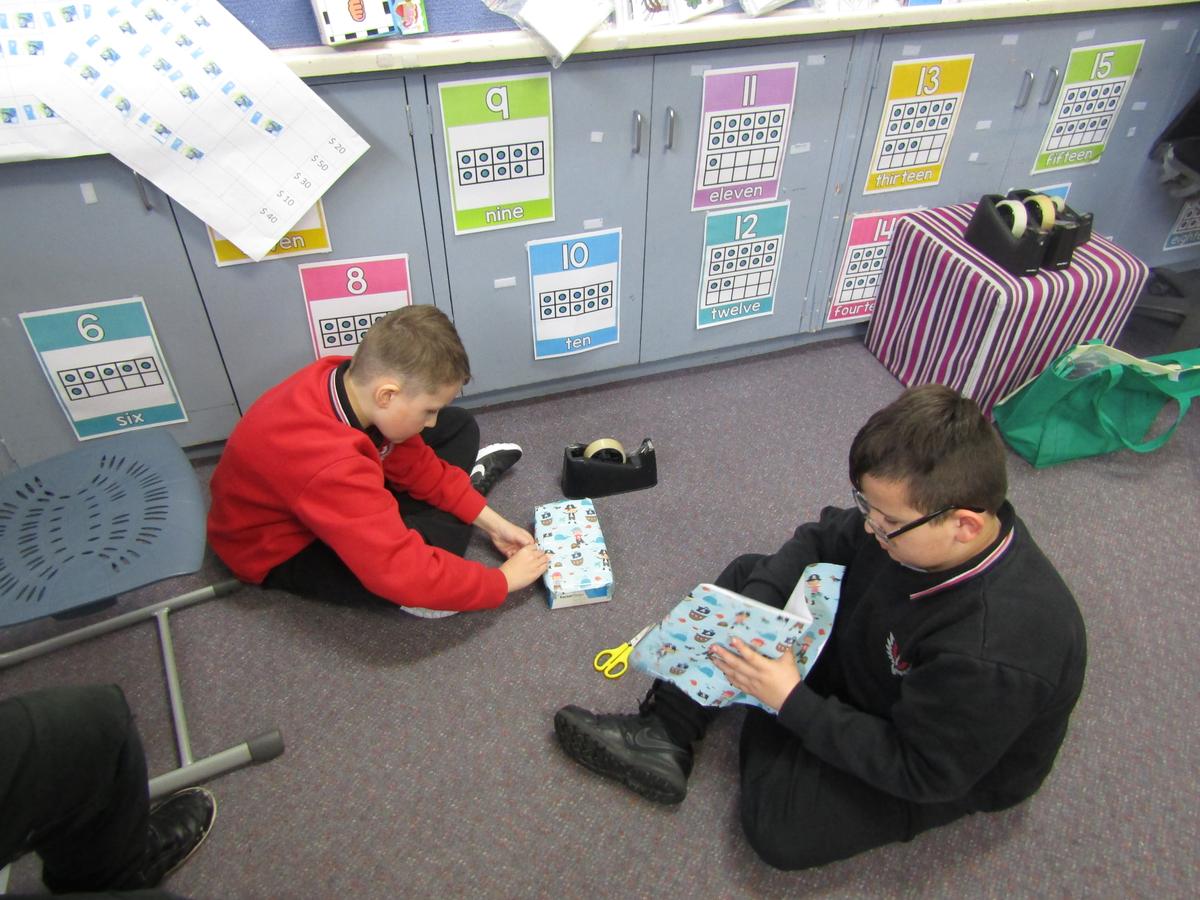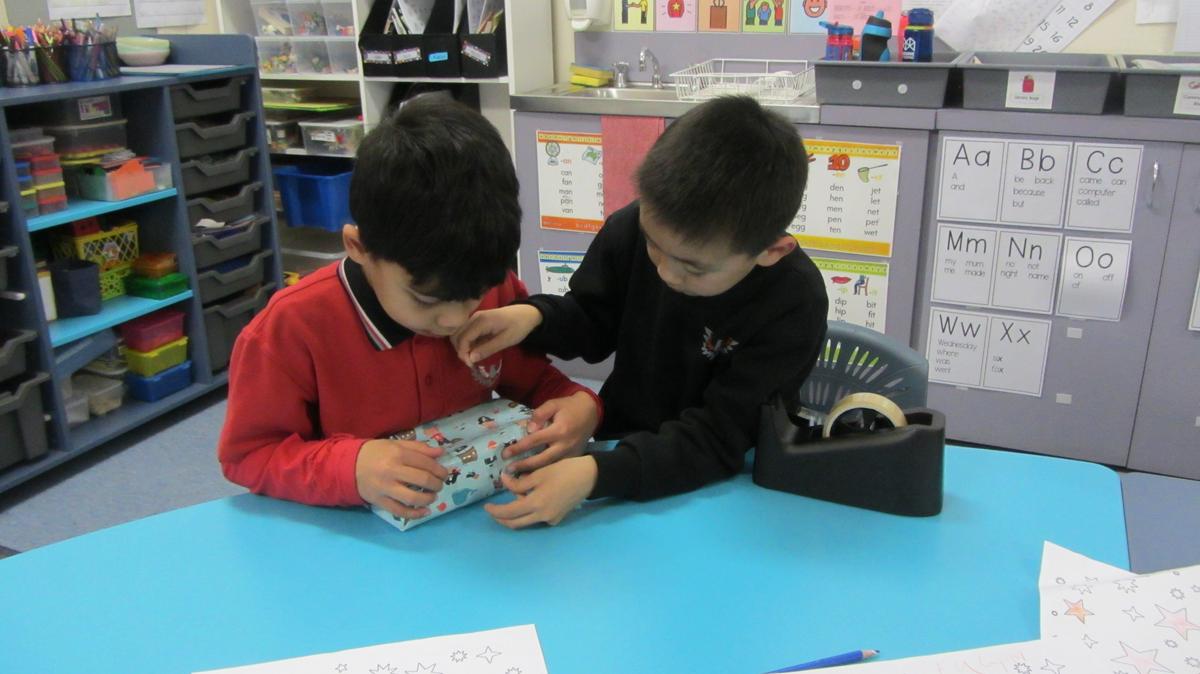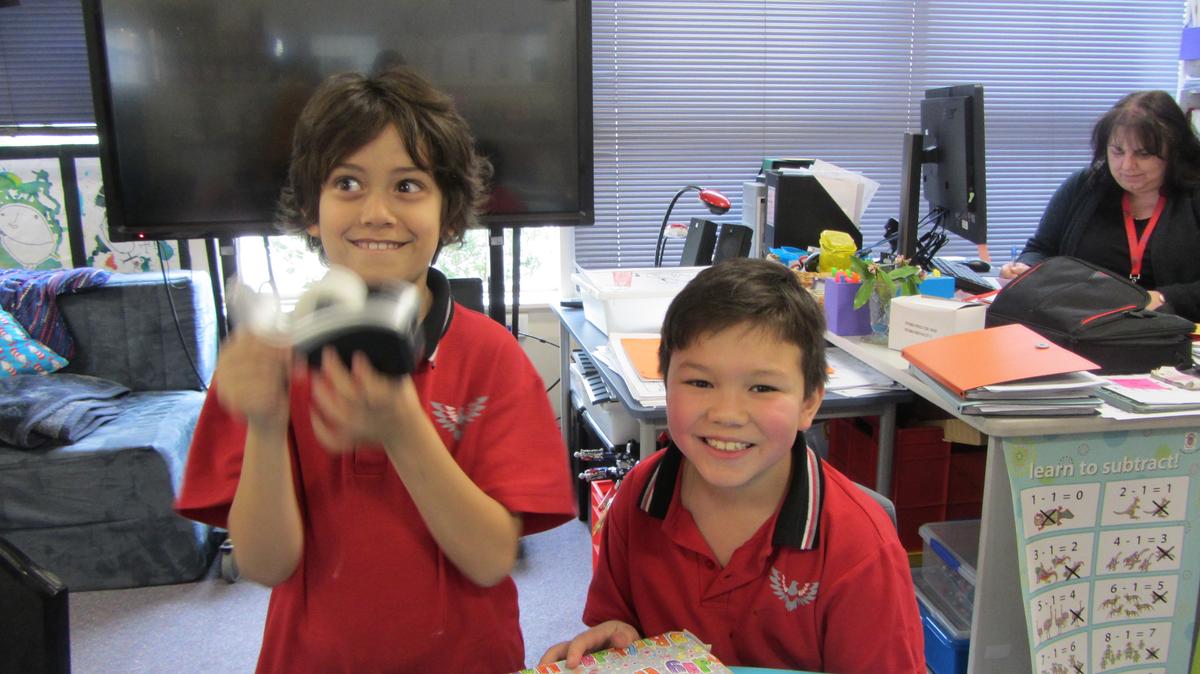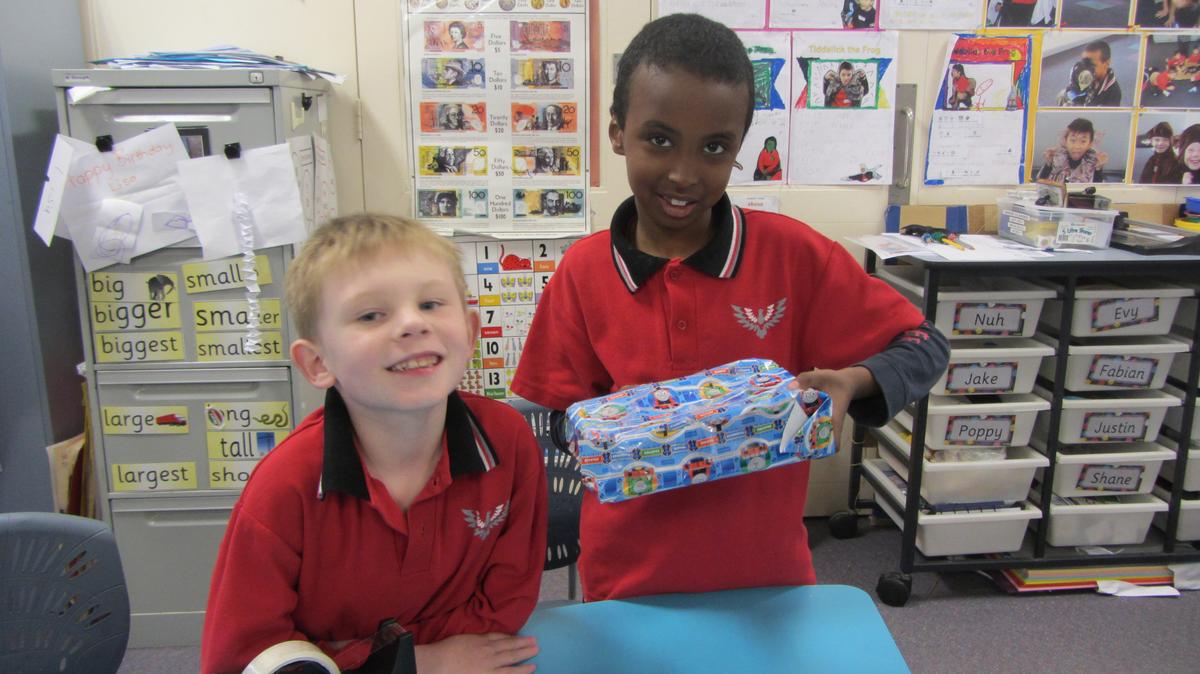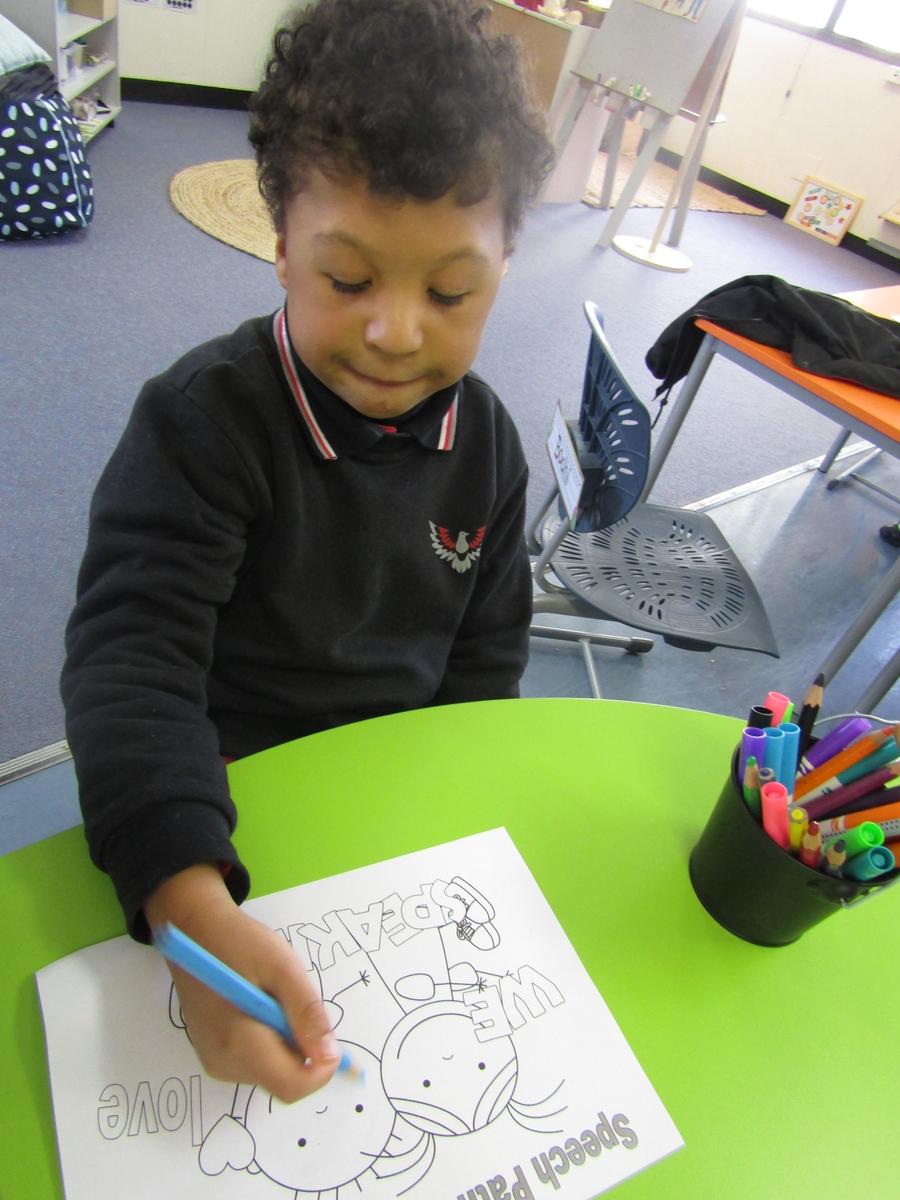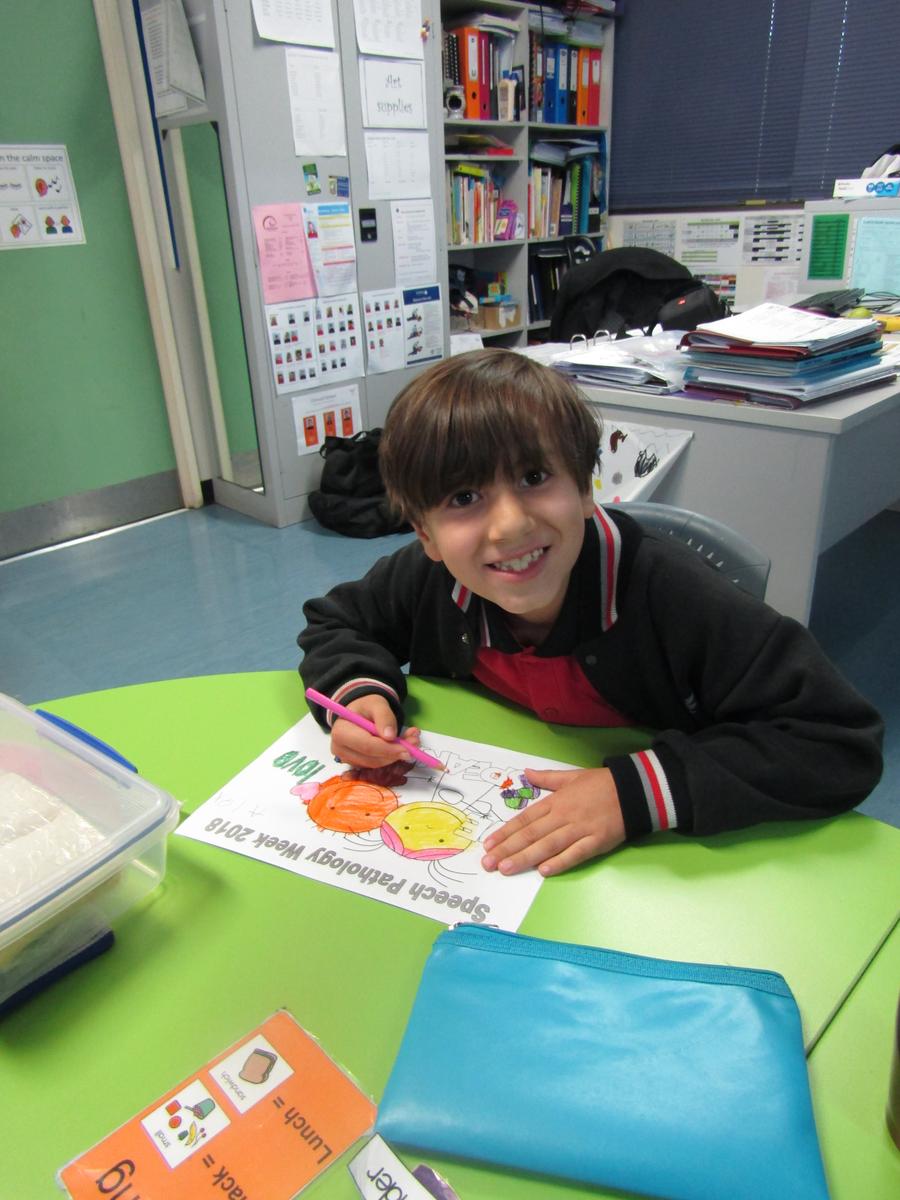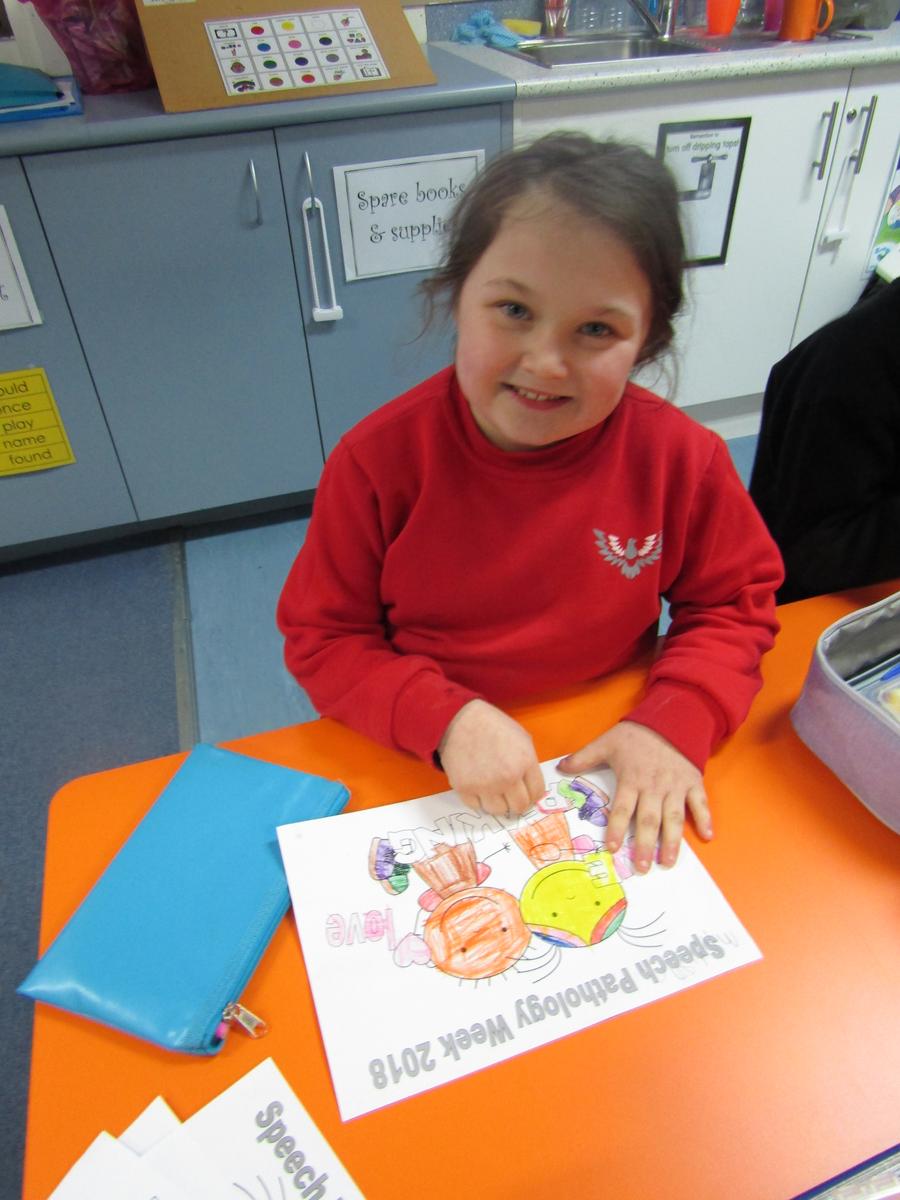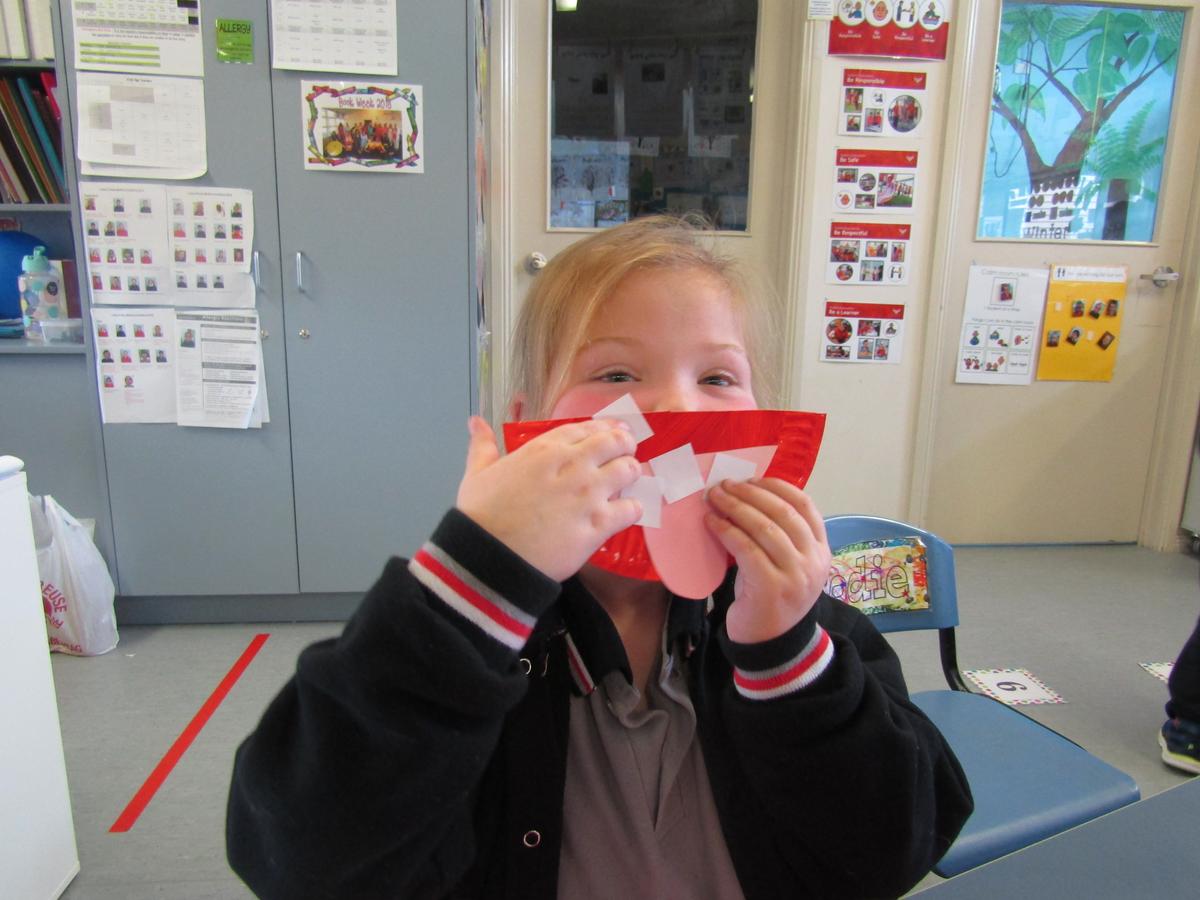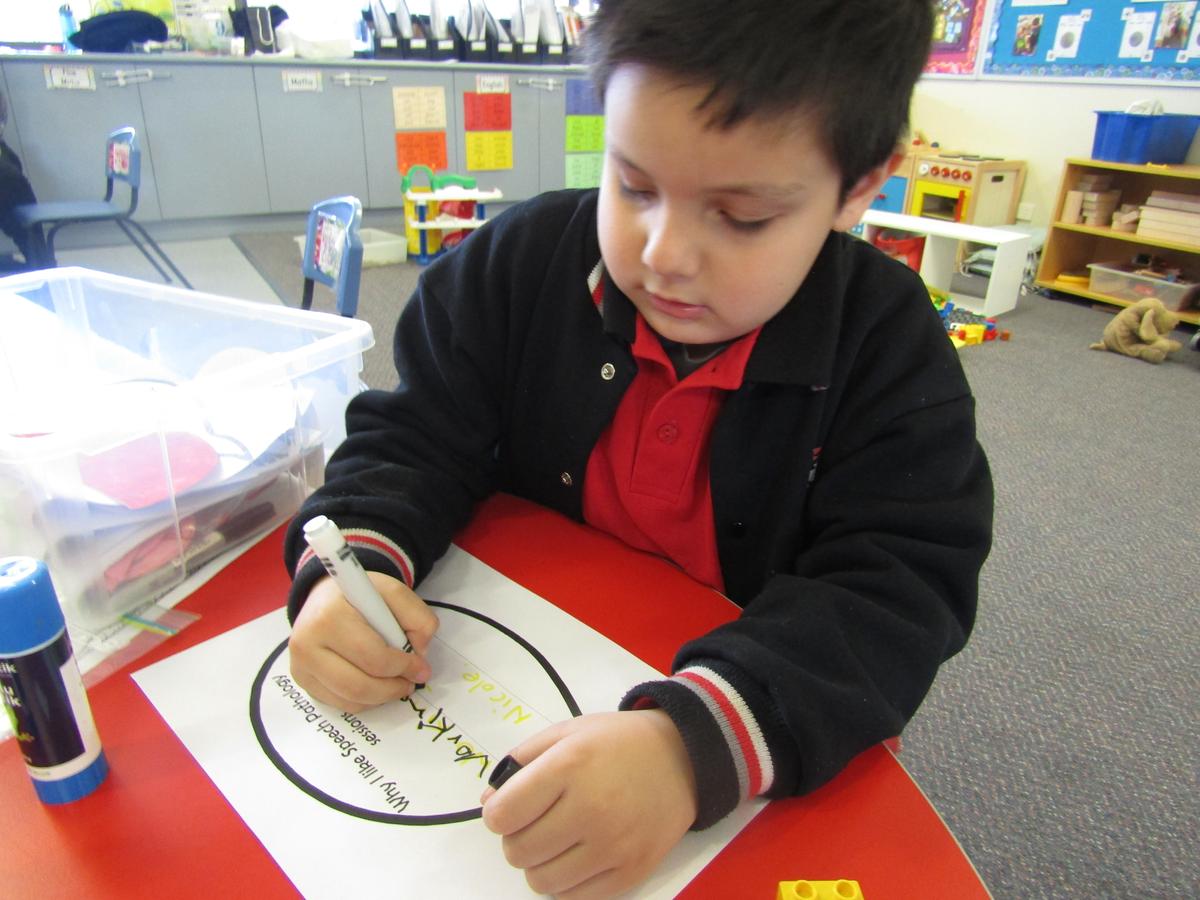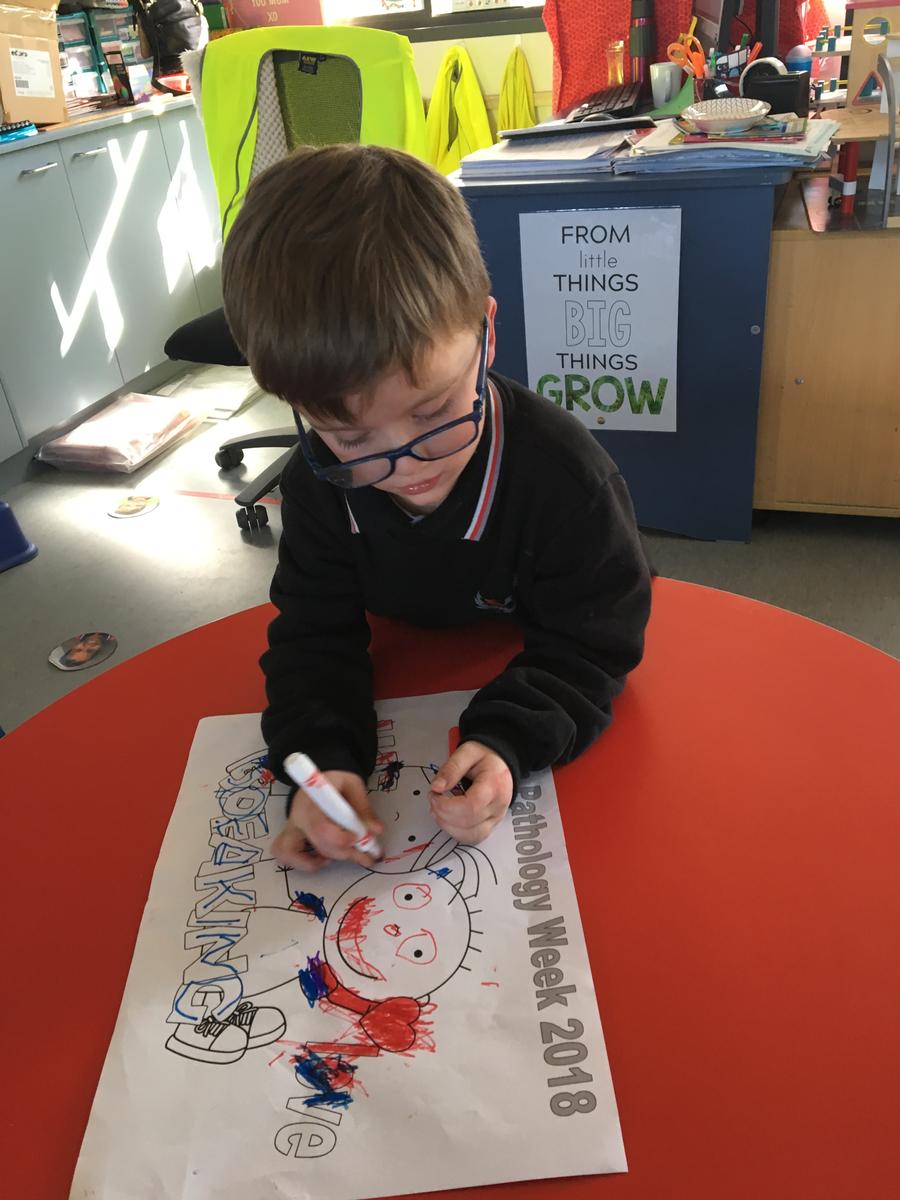Overview
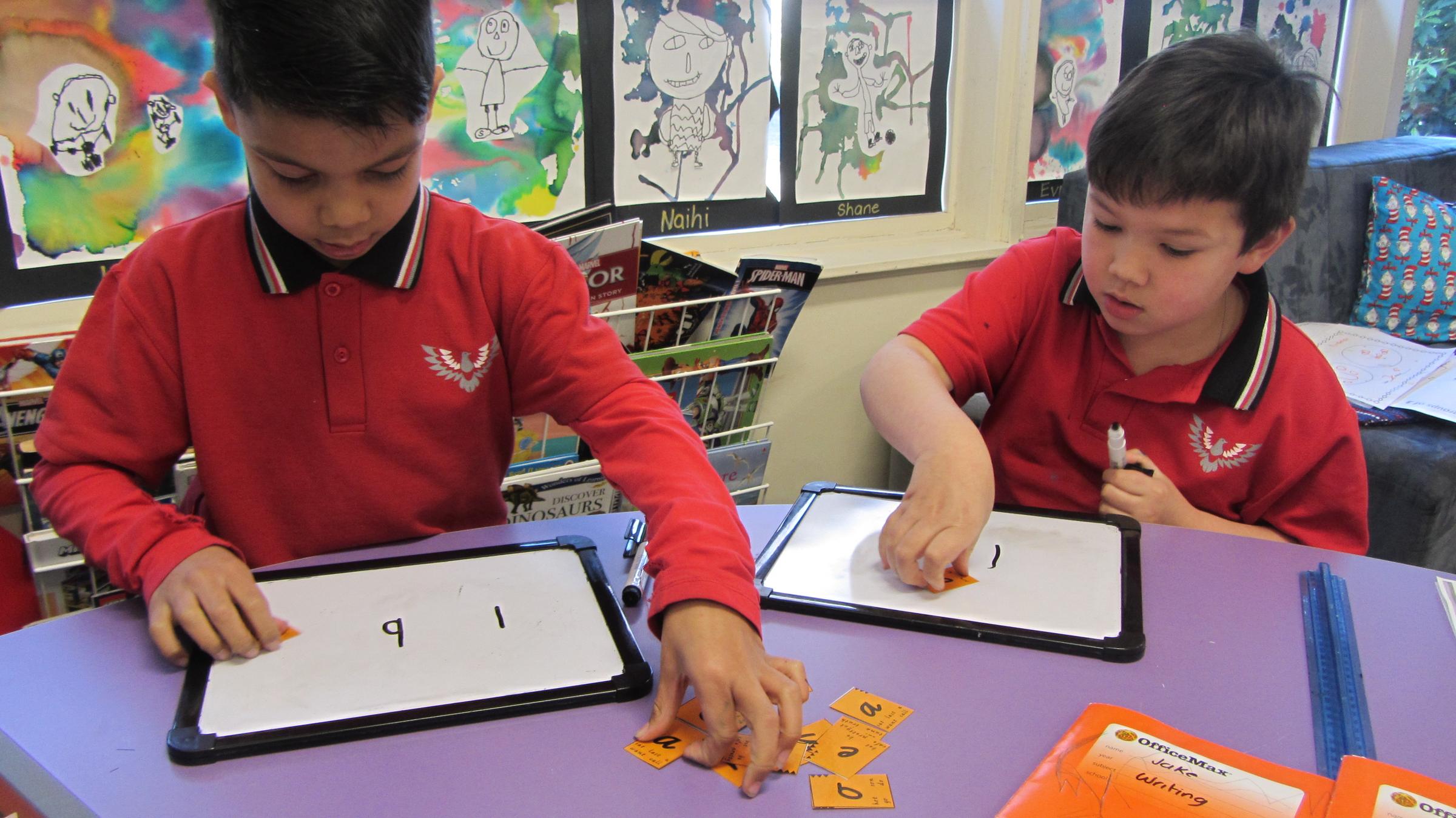
Lower Primary
As part of this newsletter I would like to highlight and acknowledge the important role that our Specialist programs play in the overall development of our students. Our students love attending these programs and especially enjoy building on their skills and knowledge outside the day to day classroom environment.
The Visual Arts program provides students with a medium to create group and individual artworks. Students are encouraged to use their imaginations and to be individually creative. They develop the confidence to choose and use a range of art tools appropriate to the task. This term students have focussed on the basic elements of colour. Students have been exploring the primary colours, red, yellow and blue. All activities have been related to naming and using these colours in their individual artworks. As skills develop students move onto mixing primary colours to make secondary colours for example red and yellow make orange, blue and yellow make green.
Activities to support this learning have included:
- Cutting primary coloured paper to create a collage based on the story “Mouse Paint. (PAL and PMM)
- Abstract paintings using only red, yellow and blue ( PLB, PJL, PNC,PKD)
- Experimentation with the mixing of colours (PLW,PHT,PKW)
Art Extension Program
Students across the campus will have the opportunity to take part in an Art extension program and contribute to a campus art work. To date, students of PLW, PKW and PJL have worked collaboratively to create pieces of this work which when finished will be displayed in the playground. We are looking forward to seeing the end result which will brighten up the playground and without doubt will be stunning.
The Performing Arts program encourages students to express themselves in purposeful ways through singing, movement, drama and experimentation with instruments. This term students have been exploring beat and rhythm using percussion instruments. They have used various percussion instruments to copy, follow or create their own rhythmic patterns. This program also provides students with a range of musical, dance and performance opportunities that assists them to develop a basic understanding of music and develop the confidence to perform for others. Students are using these skills as they practice for our "Going to the Zoo' performance in October.
The Physical Education Program provides physical activities that promote the development of gross motor skills, coordination, flexibility, strength and activity. A big part of this program is the ability to cooperate with others in games and play, share equipment, follow rules and maximise participation and enjoyment. Research tells us that physical activity is necessary to a person's well-being. Children are particularly affected by the positive benefits of activity or on the other hand the negative effects of inactivity. The Physical Education program plays a small part in ensuring that each student stays active. This term, PAL and PMM have been focussing on Limba Lion stances, PLB, PJL,PNC, PKD on gymnastic skills through a range of rotations whilst PLW,PHT,PKW have been introduced to football and basketball skills. The football skills area culminated in our football clinic where as you will have read in the last newsletter, we were fortunate to have four Carlton players assist us.
The Library program aims to foster a love of books and reading so that students can enjoy reading outside the school environment. Those students who are not readers yet, love to look at books, gain meaning from the illustrations and make up their own stories about the books they are "reading" and this is what can also be transferred into leisure time activities. The Library program exposes students to a wide variety of literature as well as how to use the library, follow the library routine, borrow and care for books. Students are also exposed to digital literacy through a range of interactive options. This term there has been a focus on the author Eric Carle. Students have been introduced to some of his books. These have included: The Hungry Caterpillar, House for a Hermit Crab, The Mixed Up Chameleon and Little Cloud.
The Specialist programs have provided meaningful and practical ways for students to learn new skills, to be exposed to different learning tools and to develop a sense of themselves outside their classroom.
Special Events
Father’s Day Breakfast
We are looking forward to the Father’s Day breakfast this Friday. This is a very special occasion with many of our fathers, grandfathers, uncles and other special people coming to school VERY EARLY to share breakfast with their children. It is always wonderful to see our dads, and to celebrate Father’s Day with them. All students have been working hard on their “secret” Father’s Day gifts which we are sure dad will be impressed with. Students have drawn pictures of their dads, made special Father’s Day cards and decorated bags for those special gifts. Everyone is very excited about this event and looking forward to spending time with their dad’s, grandfather’s or special people at school.
English
Phonics and Word Knowledge
Modelled and Shared reading experiences using big books, and interactive texts form the basis of our reading program. Modelled and Shared reading is also used to teach decoding strategies which includes phonics and word knowledge. These skills are focused on in modelled or shared texts by:
- repeating rhyming words
- repeating repetitive phrases
- recognising the difference between letters and words
- recognising the difference between upper and lowercase letters
- identifying sounds associated with the beginning letter of words
- identifying sounds associated with the final letter of words
- identifying short vowel sounds
- blending sounds associated with letters when reading consonant-vowel-consonant words- hen, cat, pit
- blending two letter initial consonant blends eg: fl, cl sl
- recognising high frequency words
Writing
Descriptive Text
The primary purpose of descriptive writing is to describe a person, place or thing by using the five senses and descriptive words (adjectives). It is important that students continue to build on their oral language skills so that in turn they have the language to develop their own descriptive writing. In the early stages, a description can be as simple as responding orally using descriptive language to a stimulus activity such as dipping into a feely bag, taking objects out of a mystery box , blind-folded tasting, moving through an obstacle course viewing a video or photo using the orientation prompts:
- What did you see?
- What did you hear?
- What did you smell?
- What did you feel?
- What did you taste?
- What shape is it?
- What size is it?
- What colour is it?
Students have been provided with explicit instruction to assist them to complete a descriptive text. They use aided language displays, picture words, picture word sentences to assist them.
Mathematics
Groups and Sharing (multiplication and division)
Students have been involved in a range of activities that involve grouping and sharing small quantities. They have used objects, diagrams and pictorial representations to solve problems involving both grouping and sharing.
Activities using a range of materials have included:
- Making equal groups.
- Exploring action stories such as “Mark has 2 bags of apples. There is 1 apple in each bag. How many apples are there altogether?(grouping/ multiplication)
- Exploring action stories such as “there are 12 apples in the fruit bowl. Can you share these between 3 people” (sharing/ division)
- Making 3 groups with 2 objects in each group.
- Sharing counters into different equal groups- 4 counters into 2 groups, 6 counters into 2 groups
- Using the language of same, equal, group, share and each
Length
Students have been comparing ‘long’ and ‘short’ objects and learning how to order objects by measuring them against each other. They have been encouraged to use the language of measurement such as same, long, longer, short, shorter, tall and taller. For those students who have further developed measurement skills have been using icy pole sticks, blocks and paper clips to estimate and then check which objects are longer.
Integrated Unit
Weather
Students continue to investigate the weather and how weather can affect their lives. Students have used their senses to develop knowledge about the weather.
Students have focussed on key questions such as:
- What types of weather is there?
- Is the weather the same for the whole day?
- What can we find out about the weather?
- How does the weather affect what you wear, eat and do?
Students have created:
- whole class or individual weather journals.
- symbols for cloudy, rainy, sunny, stormy, windy
- word walls of descriptive weather words.
- art works representing the seasons
- models of students wearing appropriate clothing to suit the weather conditions
- crystal snow flakes
Social Competencies
In the Social Competencies program, some classes have continued with the topic “Working in Teams”. They have explored ways that they can work and interact together. Different classes have focused on varying topics including different ways of sharing, taking turns, behaving appropriately in a losing situation and working with a partner to achieve a task. The Prep classes have started their Drug Education Program. At this starting level, the learning is around differentiating between “ sick and not sick”. This is achieved by looking at pictures, in role play and playing with and looking after the dolls who are “sick or not sick”.
Speech Pathology
From the 19th to the 25th of August both students and staff at Concord School celebrated Speech Pathology Week. The theme for Speech Pathology week 2018 was ‘Communication Access is Communication for All!’
Students enjoyed participating in a range of activities to help celebrate the week. Activities included a colouring in competition, writing what they liked about Speech Pathology sessions and making craft mouths.
Staff also celebrated with a morning tea!
Kath Moore
Campus Principal
